Caracas, Venezuela
January, 2005
January 23rd
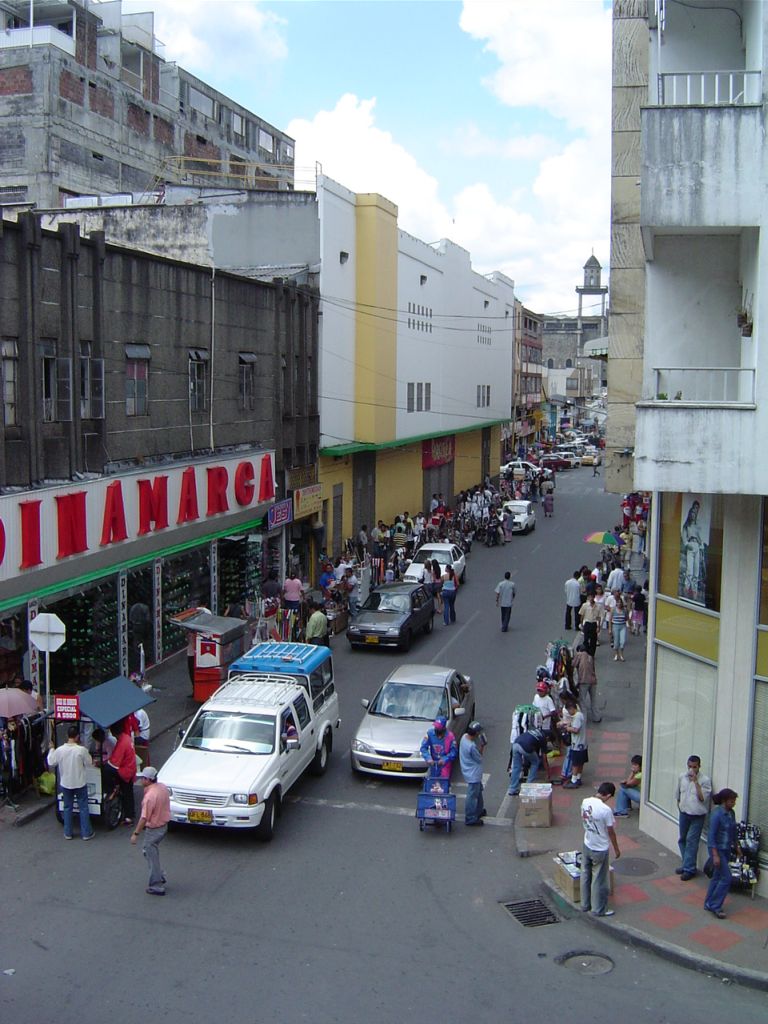
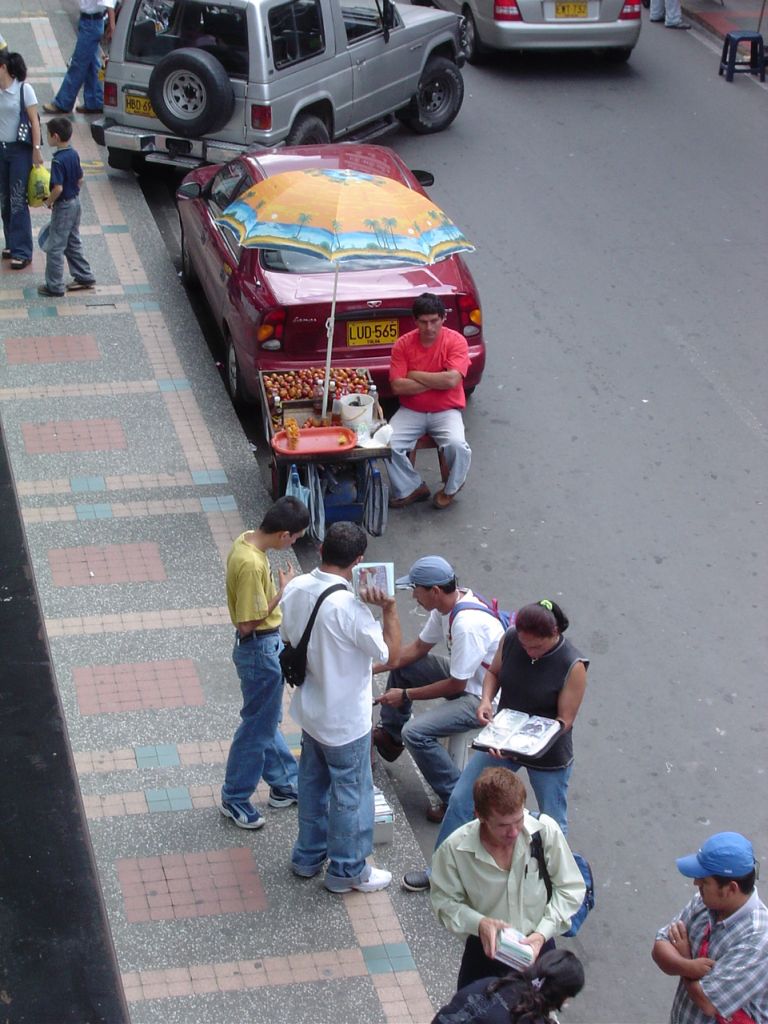
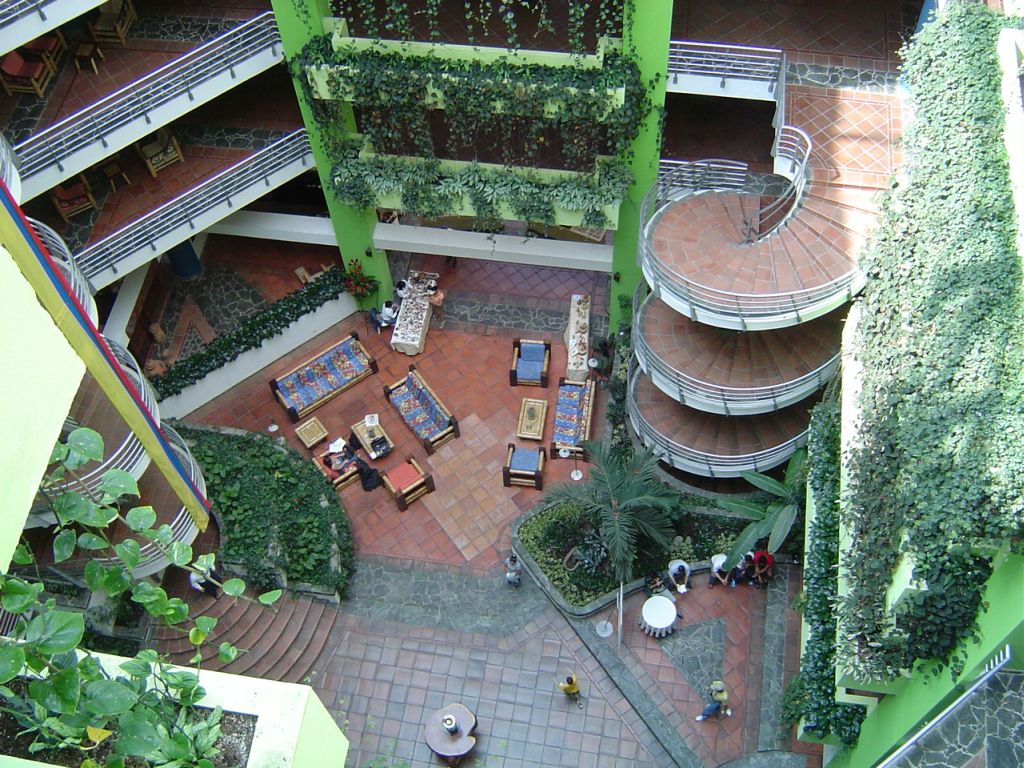
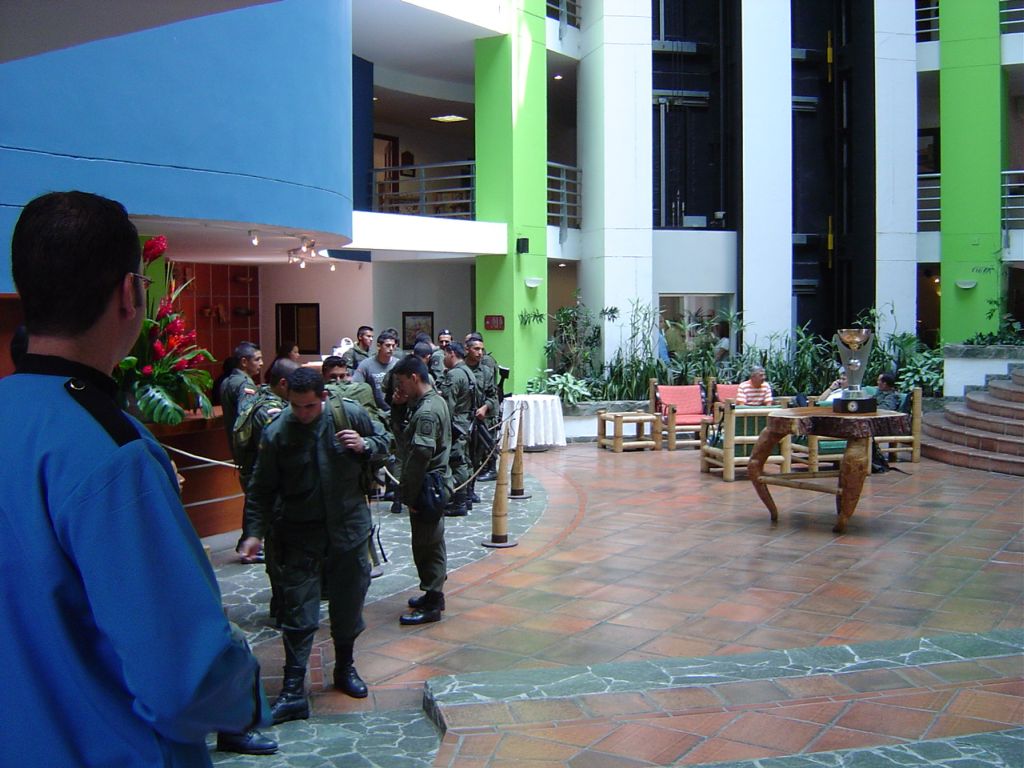
January 24th
We paid an exit tax of US$48 each at the airport in Armenia, twice the amount we expected. "No way around it," they explained when I pointed out that those staying in Colombia less than 60 days were exempt. "There won't be time to complete the refund procedure in Bogota, so get over it."
The Avianca agent who greeted us at the airport in Bogota said the same thing, but after some pestering, agreed to call another agent who might be able to help us. The second lady arrived in due course. Immediately sizing up the situation, she whisked us to the front of the incoming Immigration line we were in for 1 hour by now, dragged us past hundreds of people waiting in the outgoing Immigration line, out through the baggage claim area past the Customs Inspectors, out to the sidewalk, where we actually had to go into the street to avoid the crowd, back into terminal to the Tax Exemption desk, where she filled out two refund forms and got them stamped, on into the bowels of the Avianca office, where tourists never trod, for a full refund, then back out to the Departure area, where we paid the correct smaller amount, then back up to the departure lounge where she turned us loose in front of the hand-baggage X-Ray machine.
The guy in Armenia was absolutely correct, there wouldn't have been time for a tourist to complete the procedure and make a two-hour connection. But he didn't count on having a five-foot-tall human dynamo on our side. Many thanks to this nameless Avianca employee, who added to our feeling that Colombia is an OK country.
Having bypassed Colombia while we were in Panama due to overwhelming bad press, we found quite the opposite to be true. Colombia, though not the least expensive country in South America, was certainly the most pleasant. The Colombian people are friendly and a pleasure to deal with. Always courteous and helpful, they greet you as though they are glad to see you and be of service to you.
They certainly give a bad name to the Brasilians we left behind
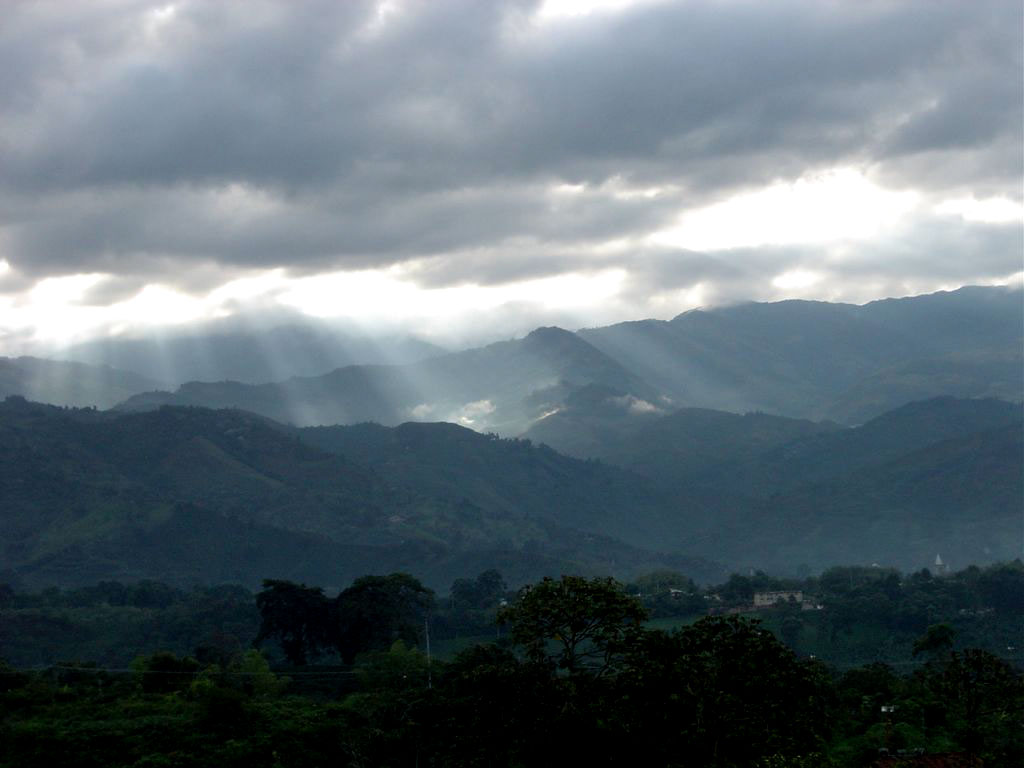
January 24th, continued
The Avianca boarding area for the hour-and-a-half 767 run to Caracas was full, with two hundred souls waiting for the flight. I counted 11 laptop computers in operation from where I stood in the middle of the group. I thought this was a good omen for a visit to a technologically advanced country. Such was not the case.
Our arrival in Venezuela was just after sunset, due to an hour delay getting off the ground in Bogota. Even in the dark, it was obvious that Caracas was not going to win any prizes for being a great place to visit. Tony, a cab-driver and tour-guide who was lounging around the hotel information desk at the airport, gave us some local advice on hotels and a 45 minute ride into town.
Hotel Cumberland, in the Sabana Grande district, was in an area that was at its best some 25 years ago. It was quiet, but the surrounding area is dirty. People we talked to in the walking zone told us to hang on tightly to our valuables.
Connecting my laptop to the Internet was a problem for the first four service providers I visited. Some refused to allow me to try to connect and others told me that connecting a laptop was prohibited. When I finally found a place that would let me connect, downloading the latest edition of Barron's magazine was as fast as at any location found during the trip, about 4 minutes for 12 Megabytes. Picking up mail was easy, but sending by SMTP was impossible. I could ping the SMTP server, but not send mail, except through the HTML capability offered by my service provider in California.
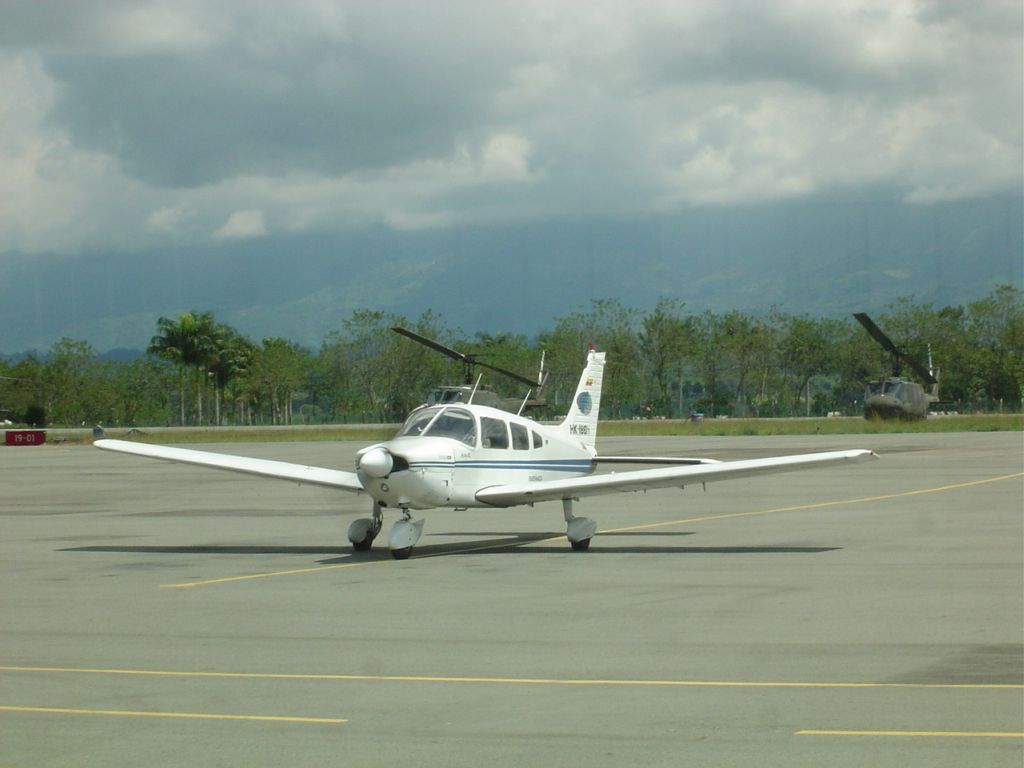
Piper Cherokee at the Armenia, Columbia, airport where we are departing for Bogota.
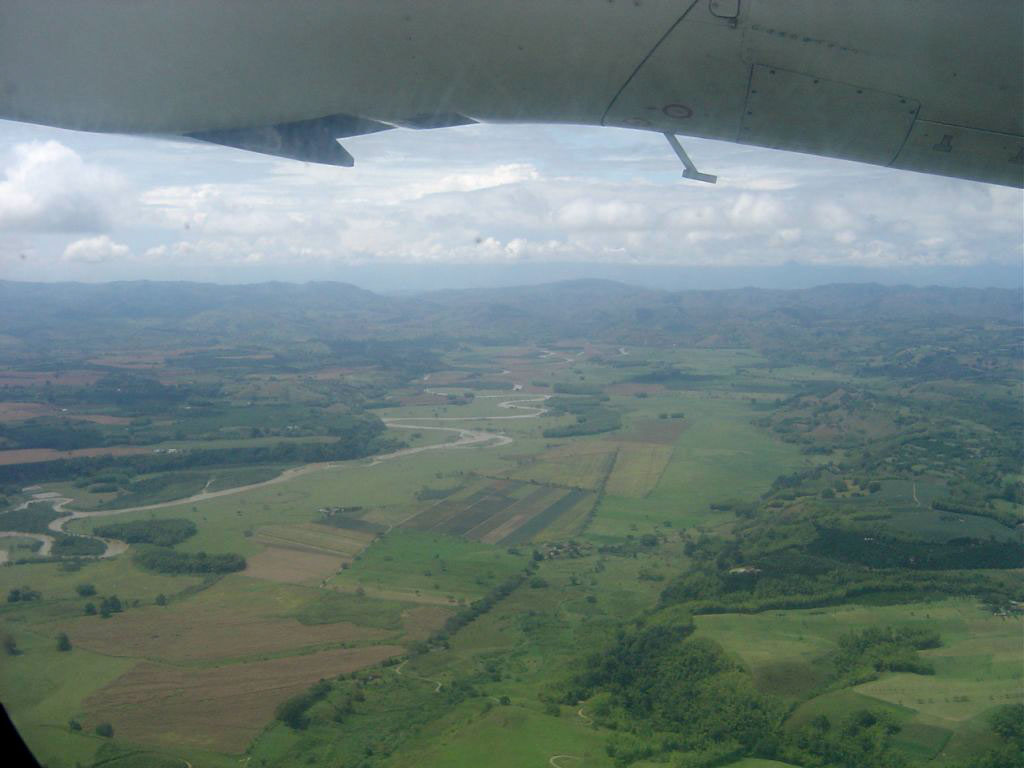
Between Armenia and Bogota
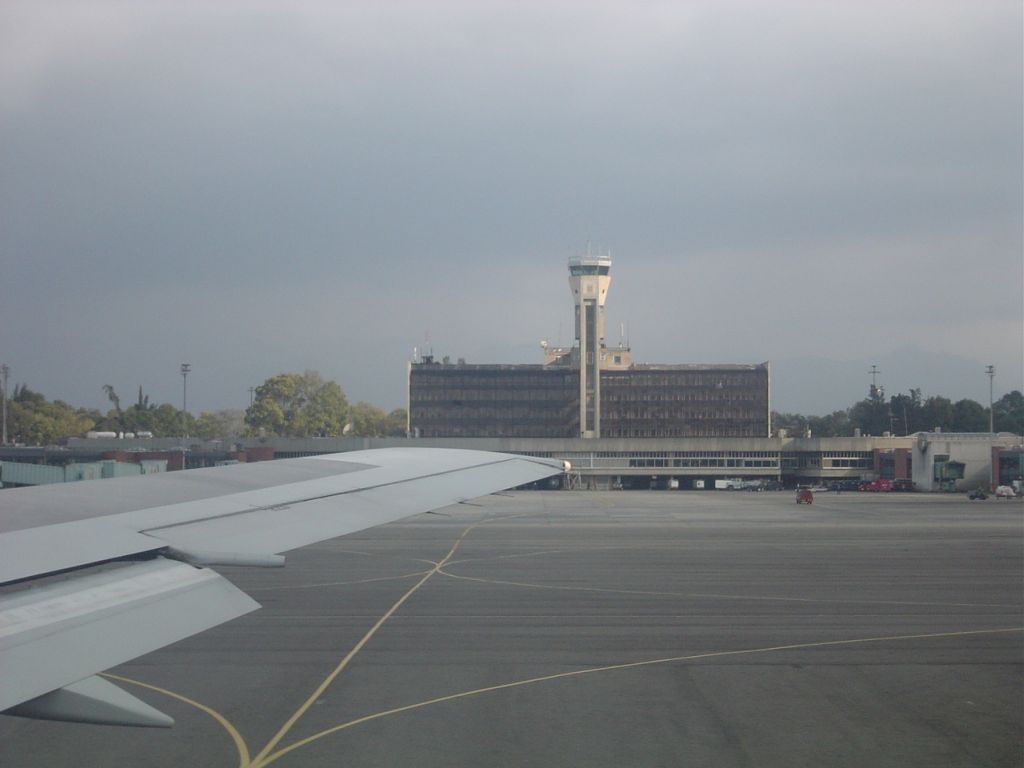
Passing through Bogota, Columbia, enroute to Caracas, Venezuela
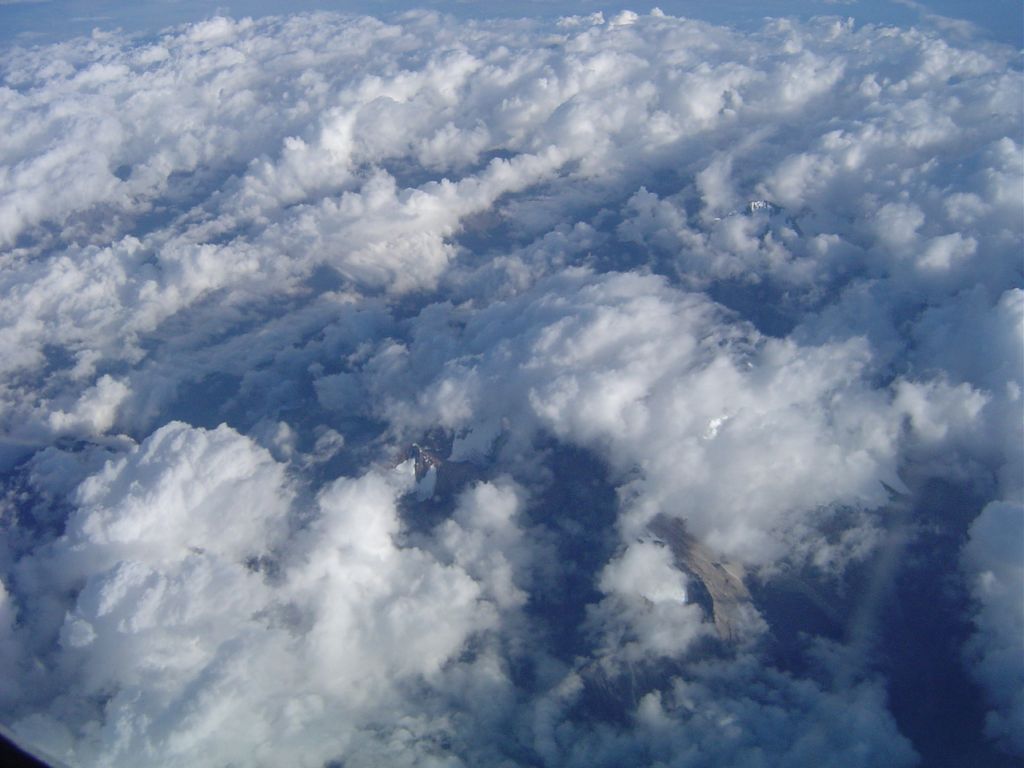
Snow on the Andes Mountains below.
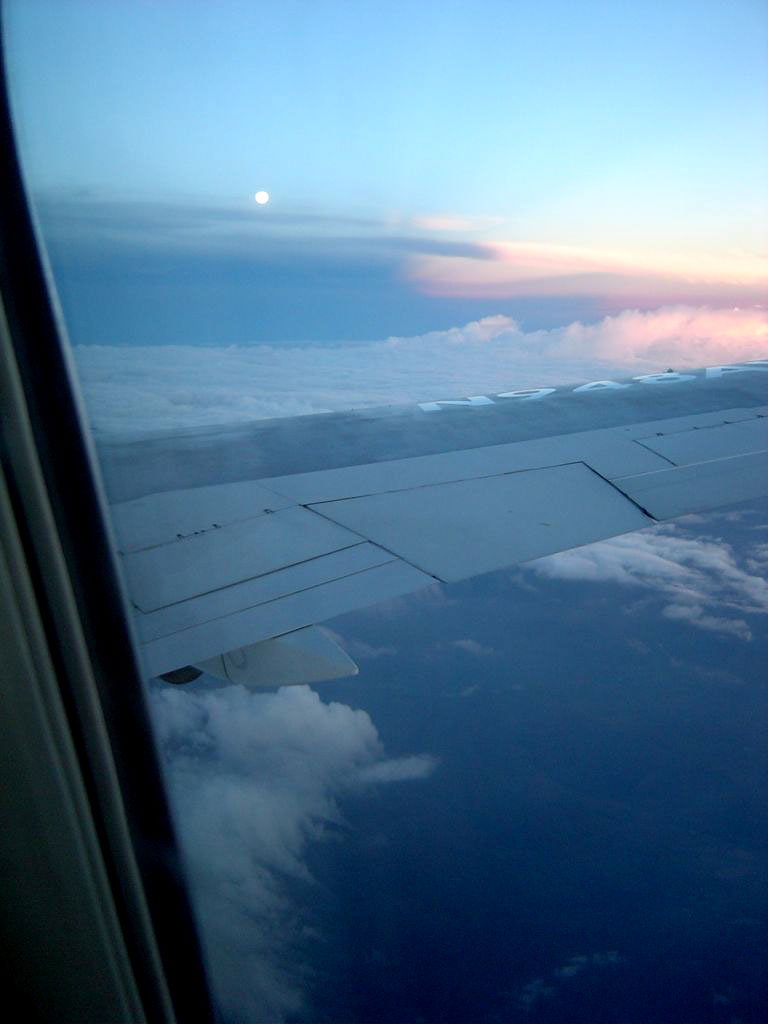
Full Moon, evening arrival, Caracas.
Boeing 767 N948AV is still in service with Avianca in 2020, 15 years later.
January 25th
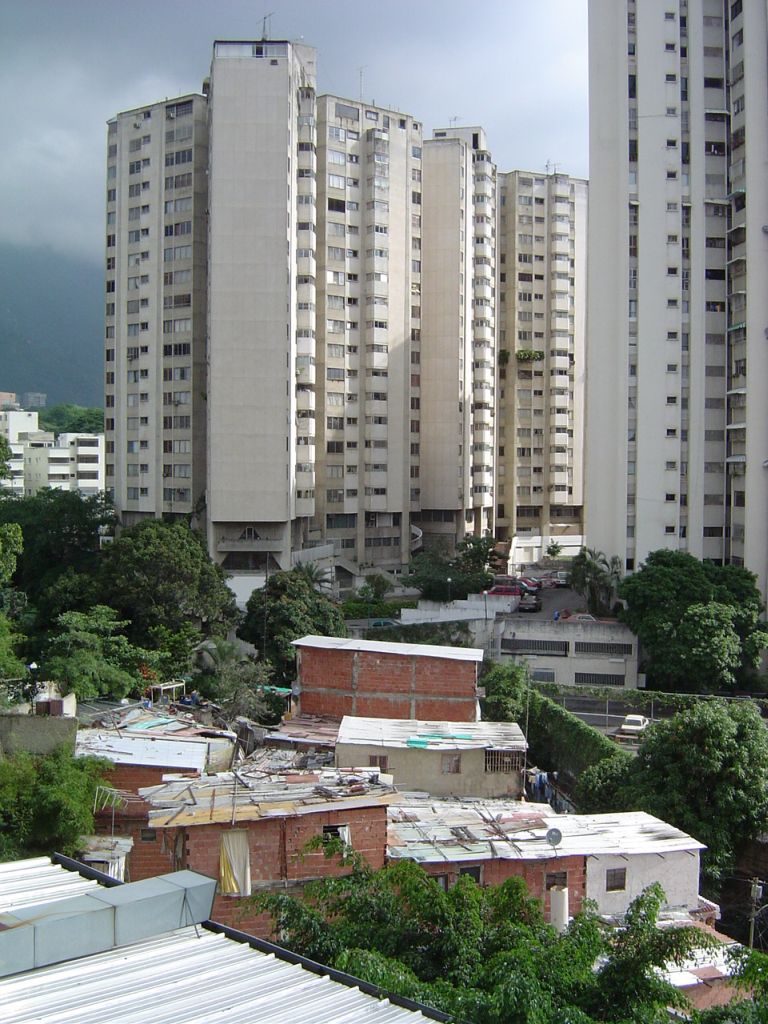
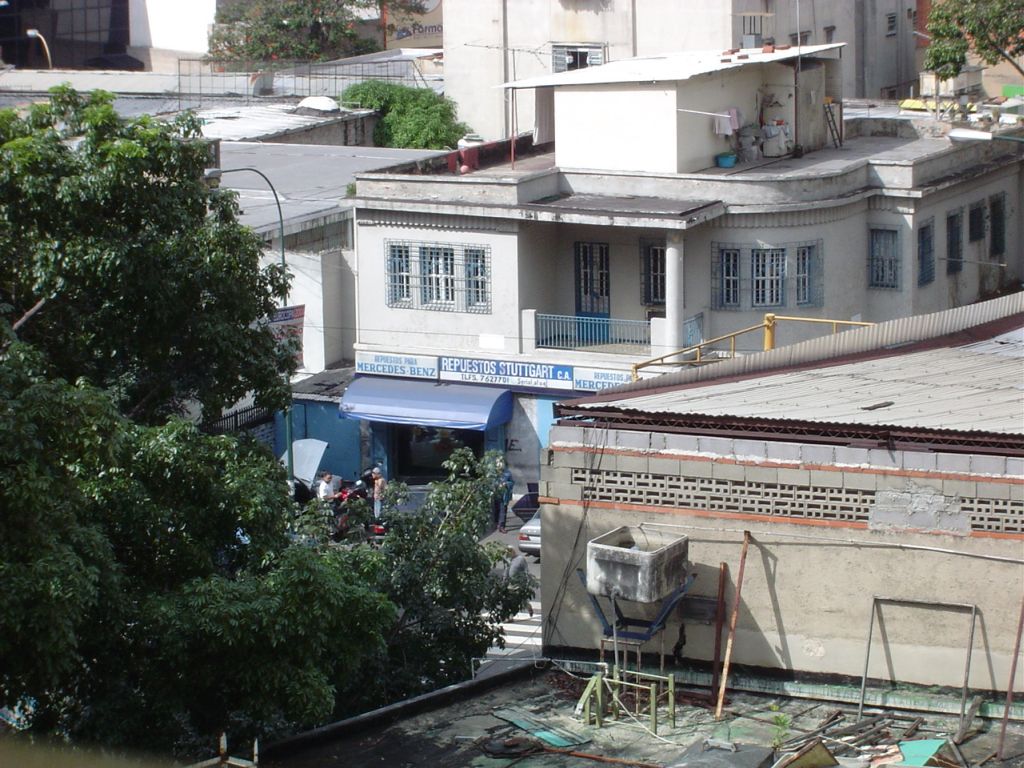
Mercedes repair shop, "Repuestos" means "spare parts"
possibly made at the factory in Stuttgart, Germany.
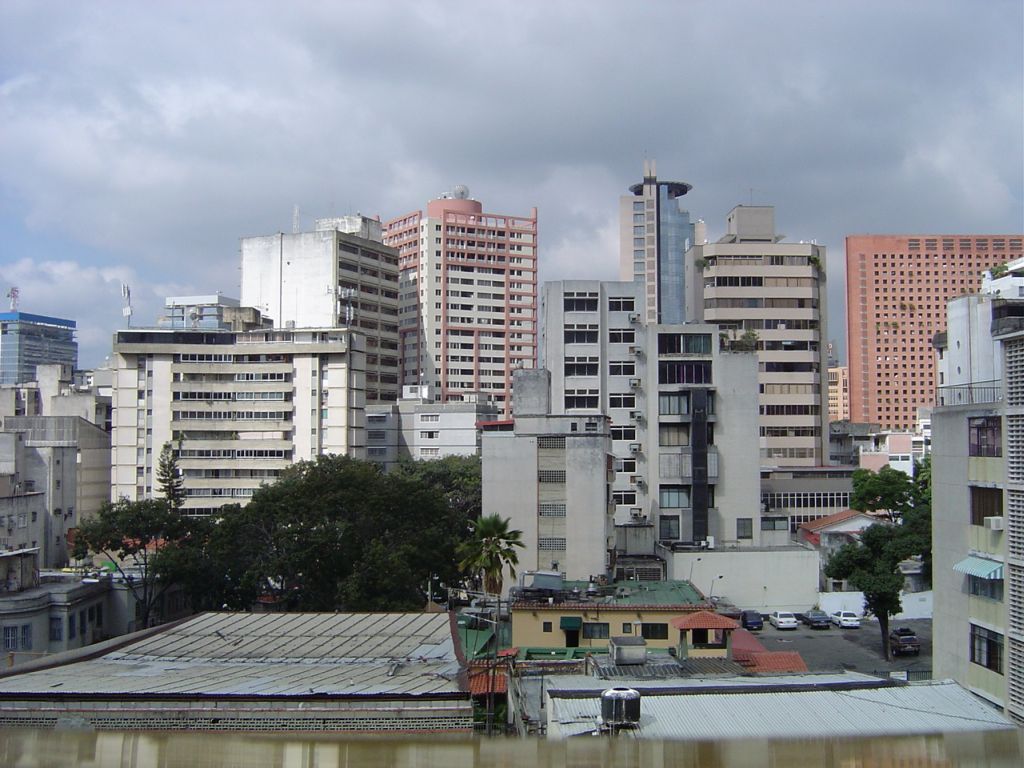
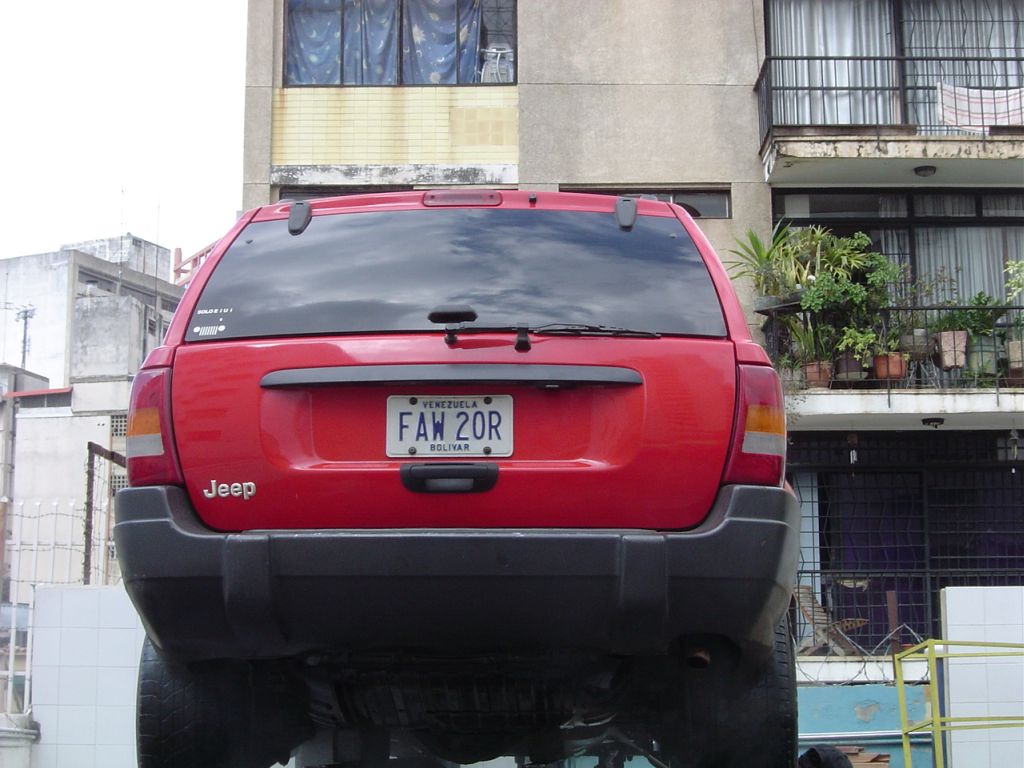
We tried to capture a Jeep license plate photo from every country,
even though ours was long ago shipped from Buenos Aires to Germany.
January 26th
Tony picked us up at 10:00 AM for our prearranged city tour. We drove through some nice residential areas on our way to El Hatillo, a little town south of the center, stopping there for a trinket and a postcard. The golf course and country club area north of the center had some nice homes, rivaling those in Beverly Hills, hidden behind high fences and guard-houses. The city-center sidewalks were clogged with street-vendors selling all manner of junk, restricting access to the legitimate businesses. Tony recounted several cases of tourists who disregarded his advice to leave their Rolex watches in the hotel safe. Wandering the area, they were unable to escape from a group of ten hungry young Venezuelans. They no longer own their watches. My Timex doesn't command the same attention.
New, shiny, Jeep Grand Cherokees are everywhere. The number defies the imagination. Every 20th car is a Jeep.
It's very common to see a vehicle's license plate number etched into the glass of every window in letters an inch tall; auto theft is a serious problem. The price of gasoline, at 100 Bolivares per liter (US$ 20 cents per gallon!!), makes huge old US gas-guzzling cars very attractive.
Anti-American sentiment was obvious from signs scattered around the city, wishing muerte to Bush and Condoleza Rice. The Four-Seasons Hotel, situated across the street from a park where numerous demonstrations took place, is now closed. A few days after we left the country, Venezuelan President Hugo Chavez cautioned other South American countries to be alert for "American Imperialism."
After our city-tour, Tony dropped us off at the Hotel Continental in Altamira, a much nicer area, but noise from blasting car horns in bumper-to-bumper traffic below our 6th floor window rendered the advantage moot. The cable TV system went down in the middle of the afternoon, with no hope of immediate service, adding to our sense of futility.
Once again, I hit the street looking for an Internet connection. It took three tries to find a place that would allow me to connect. I still couldn't send mail easily.
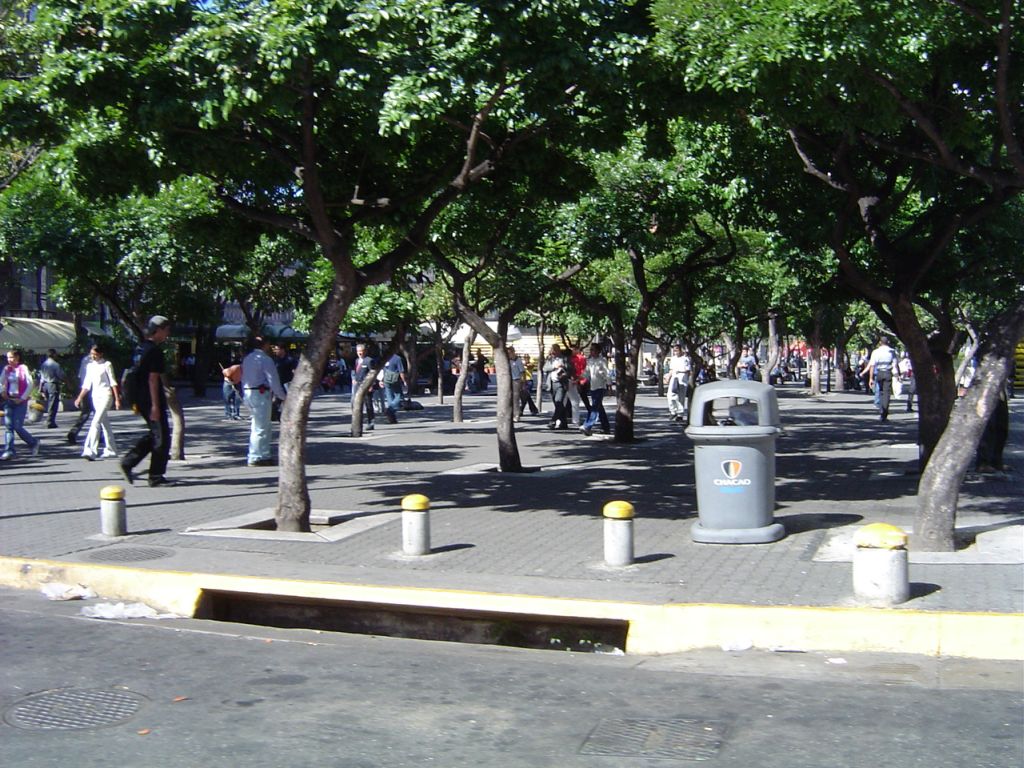
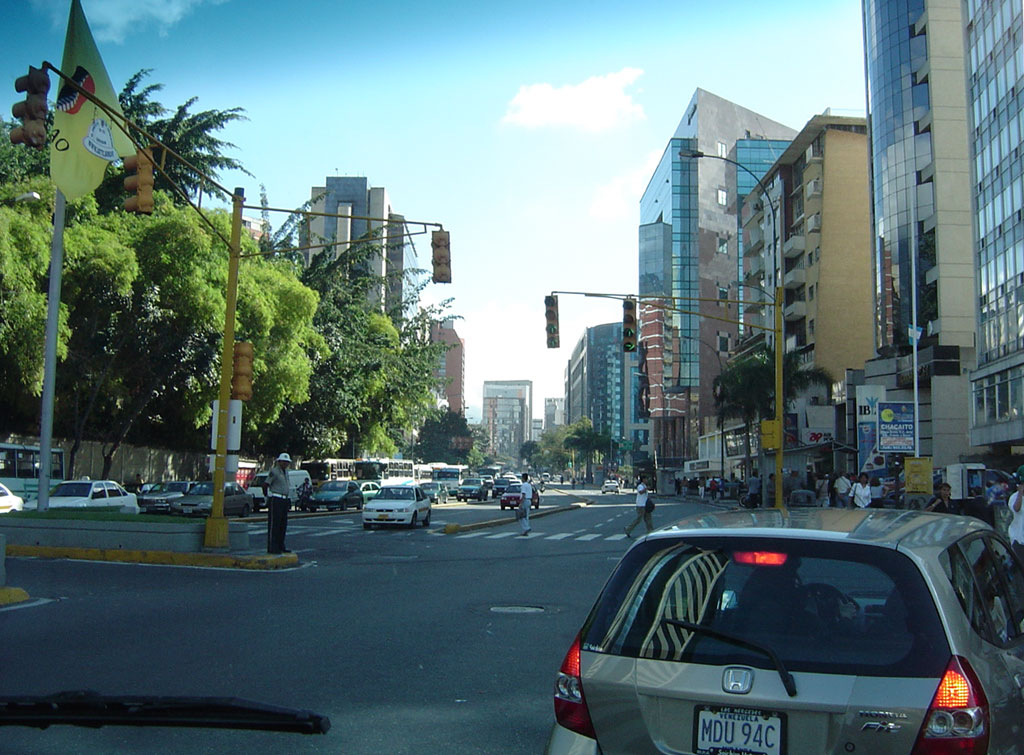
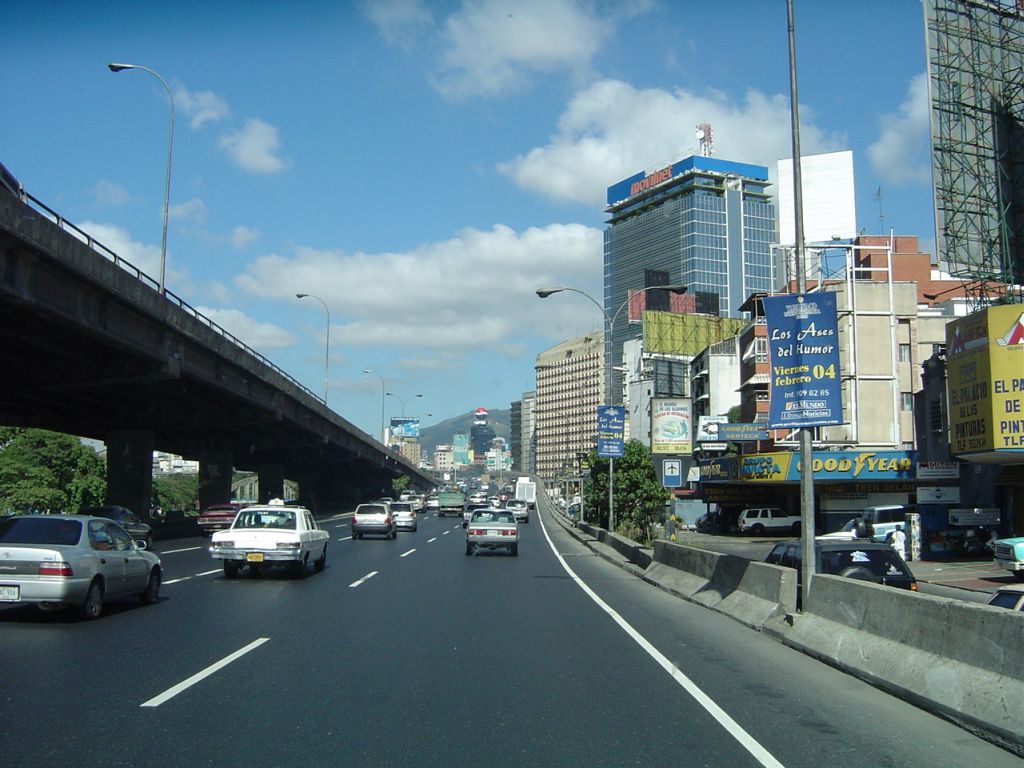
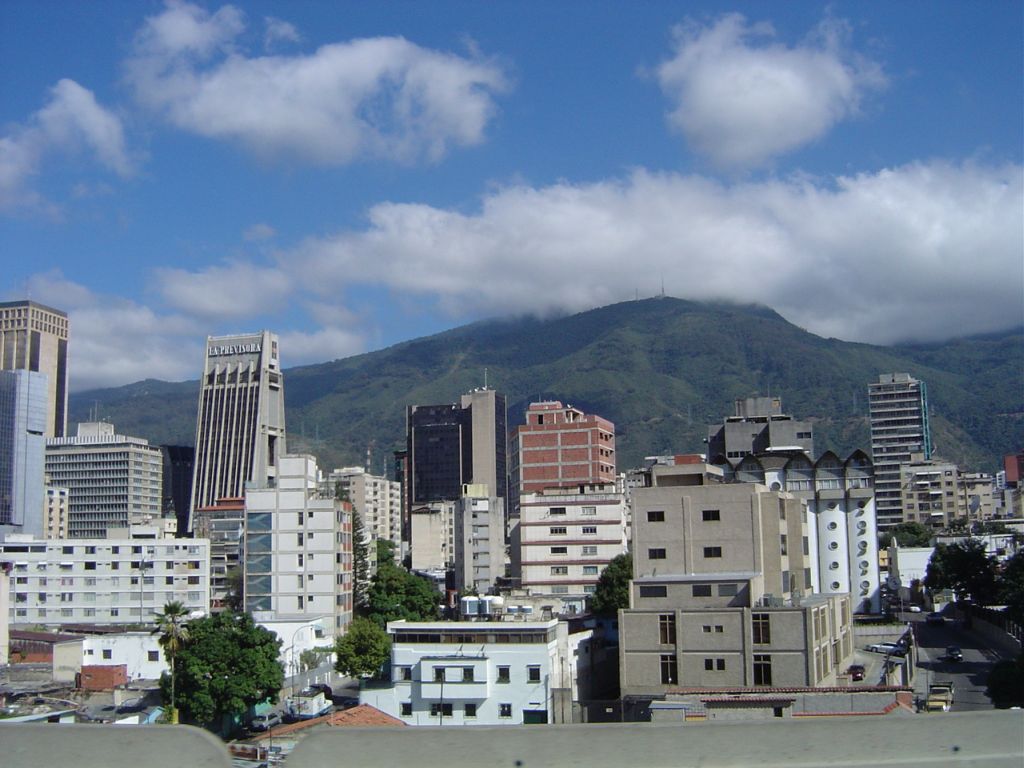
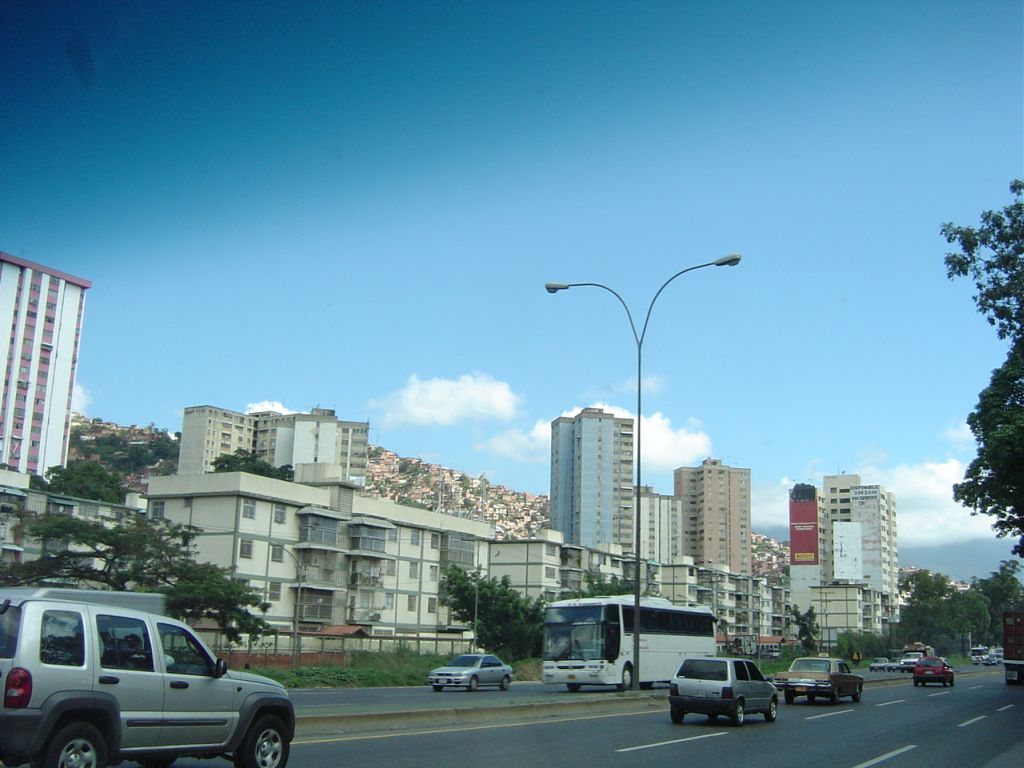
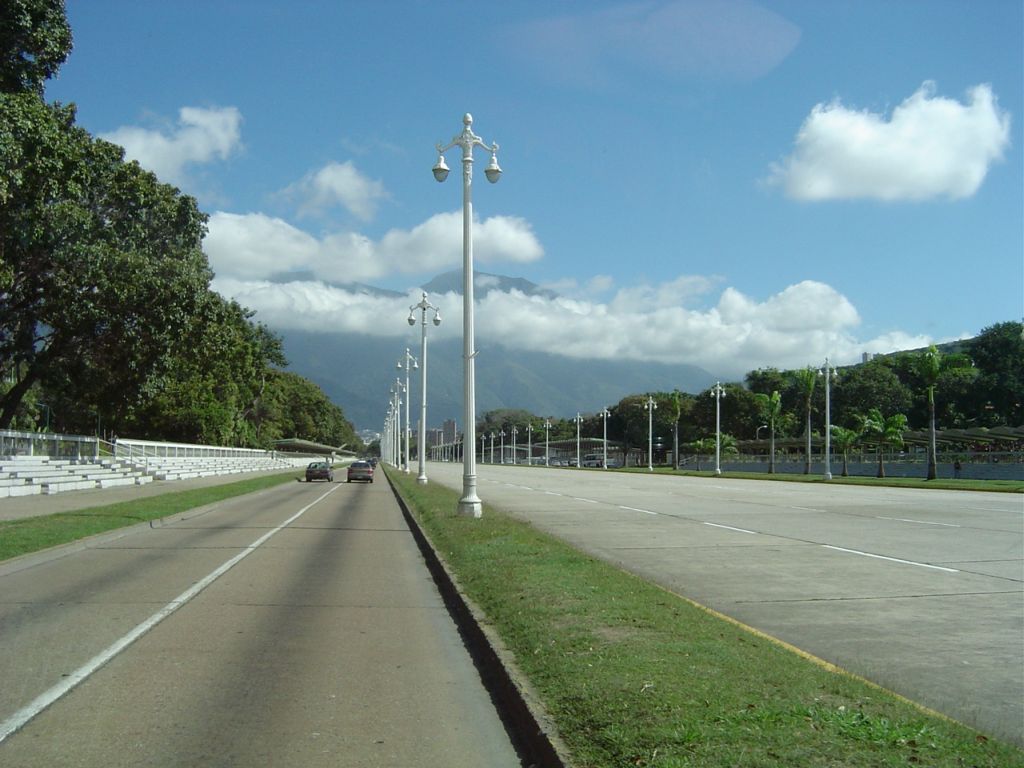
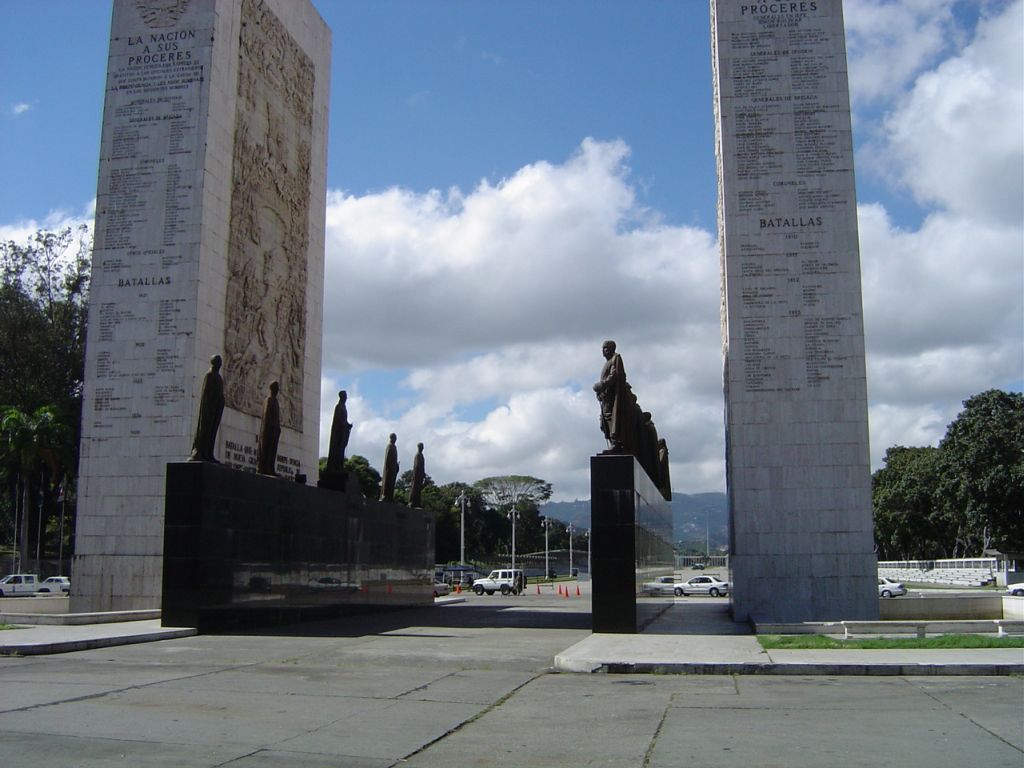
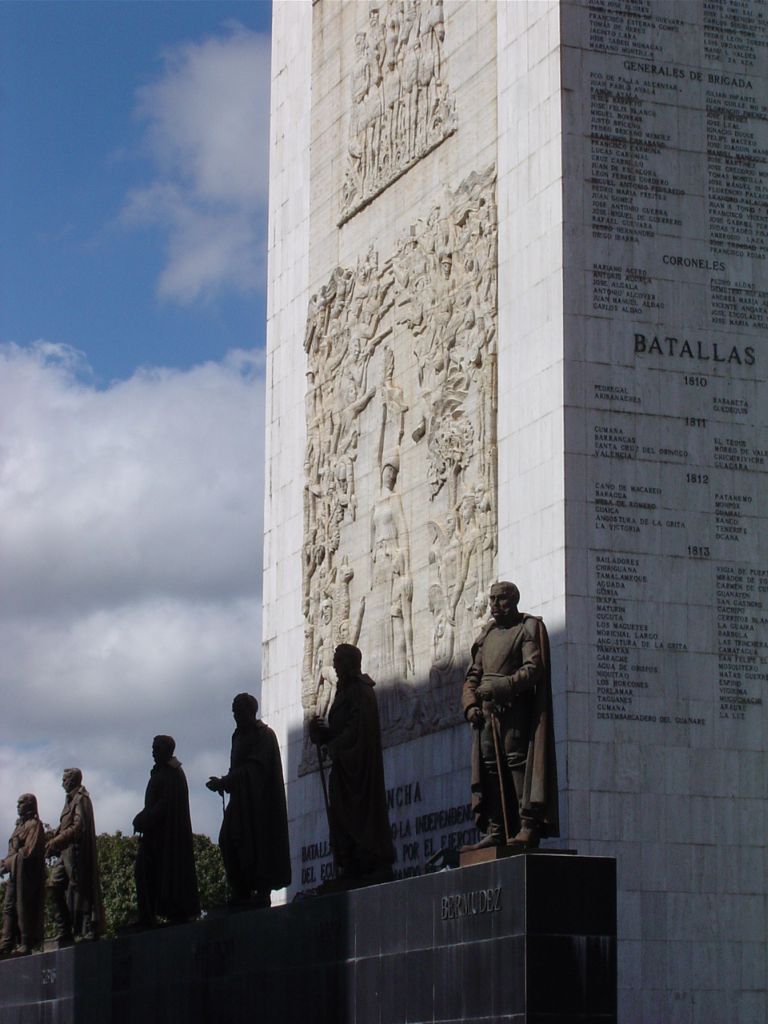
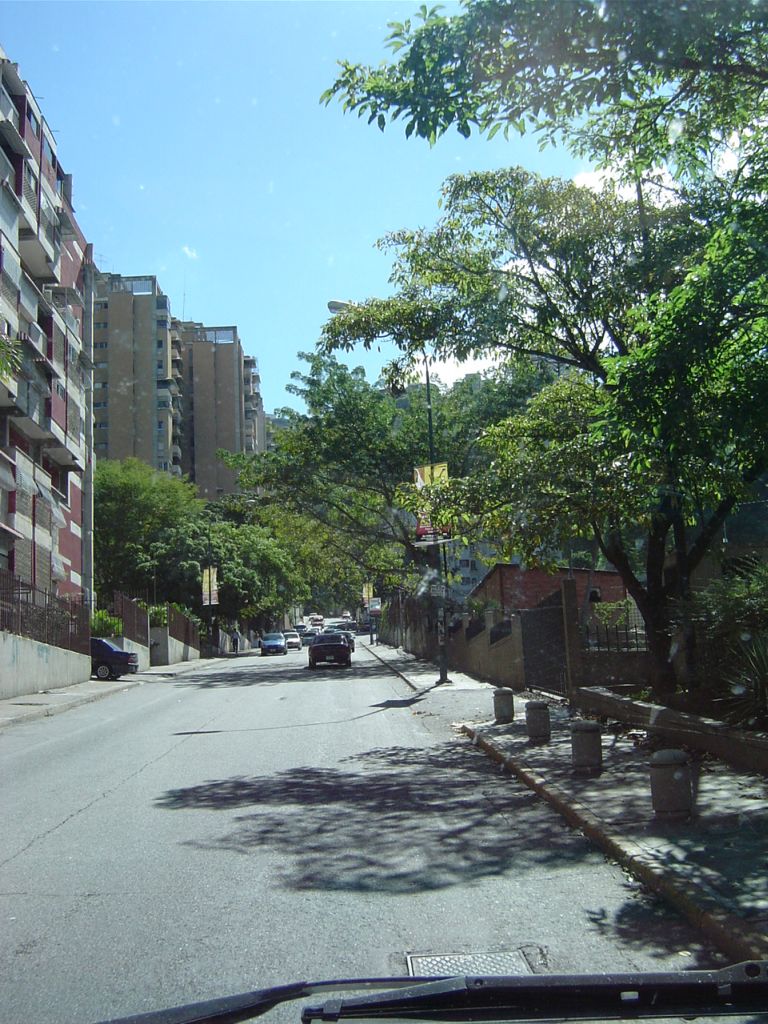
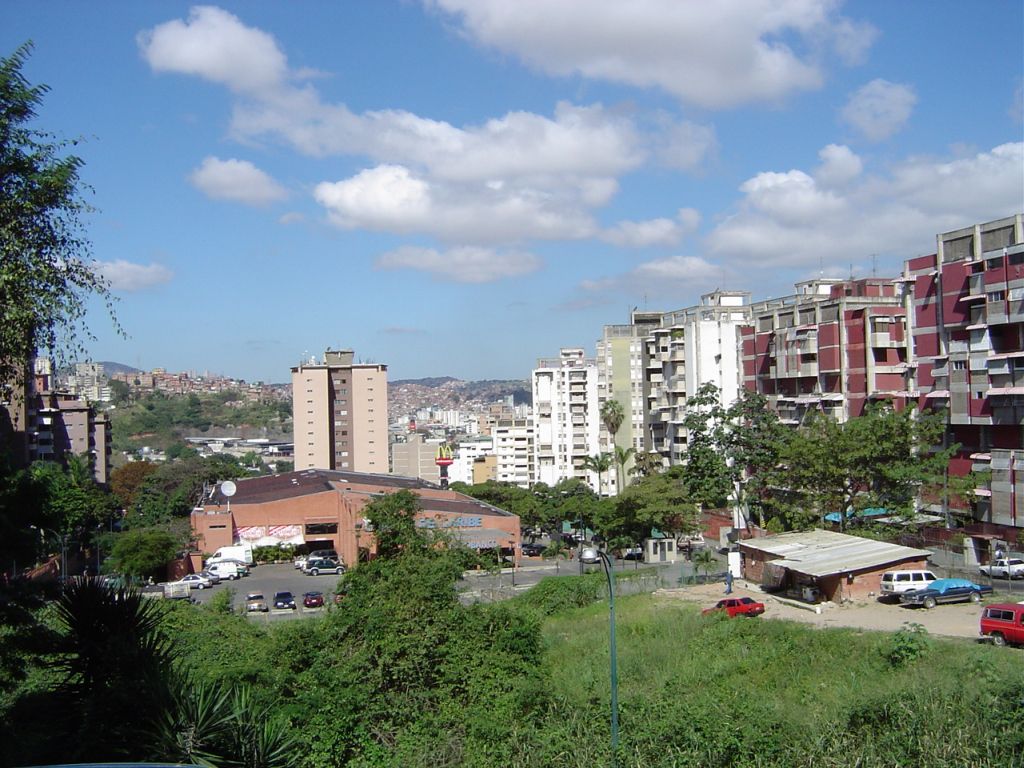
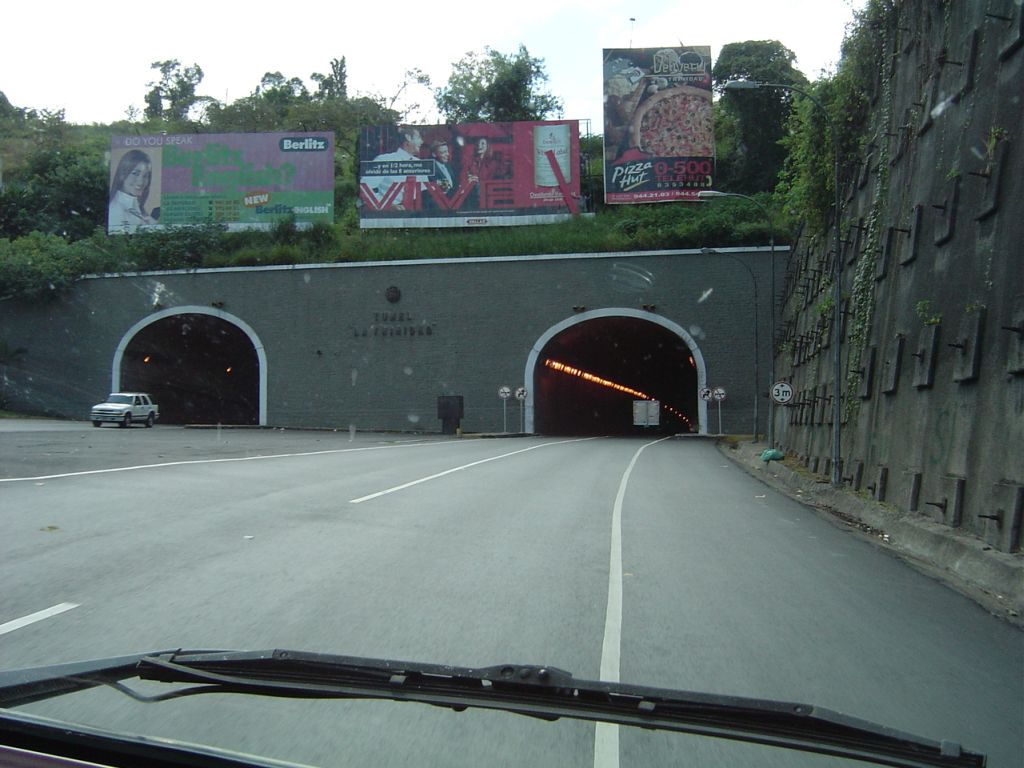
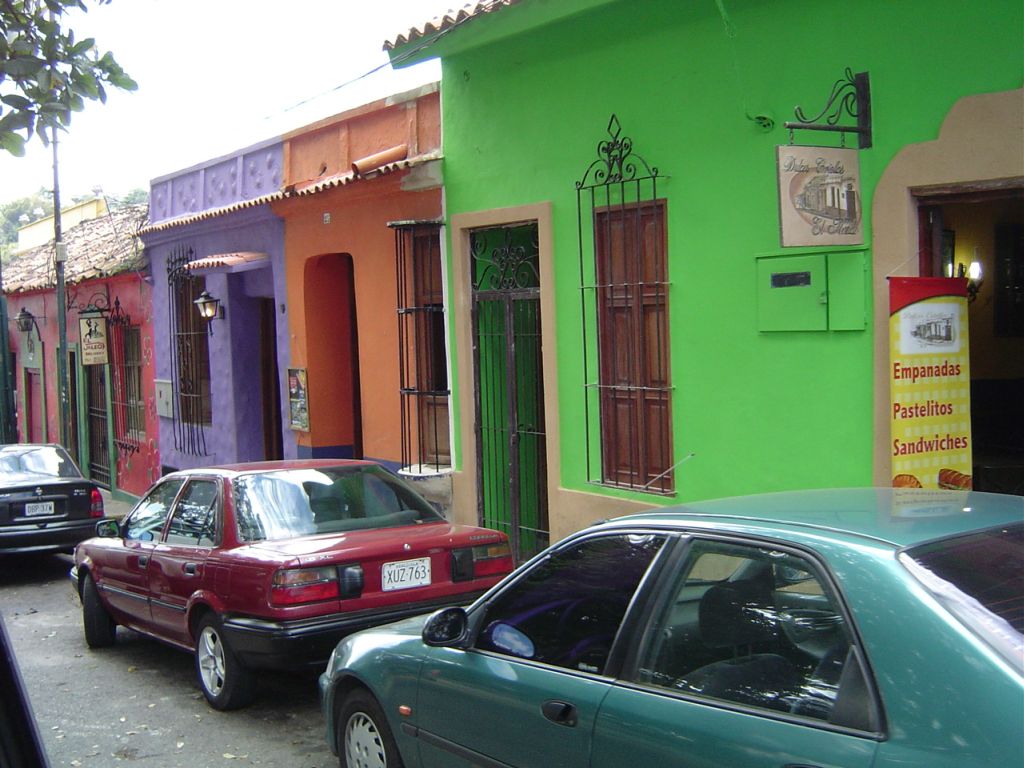
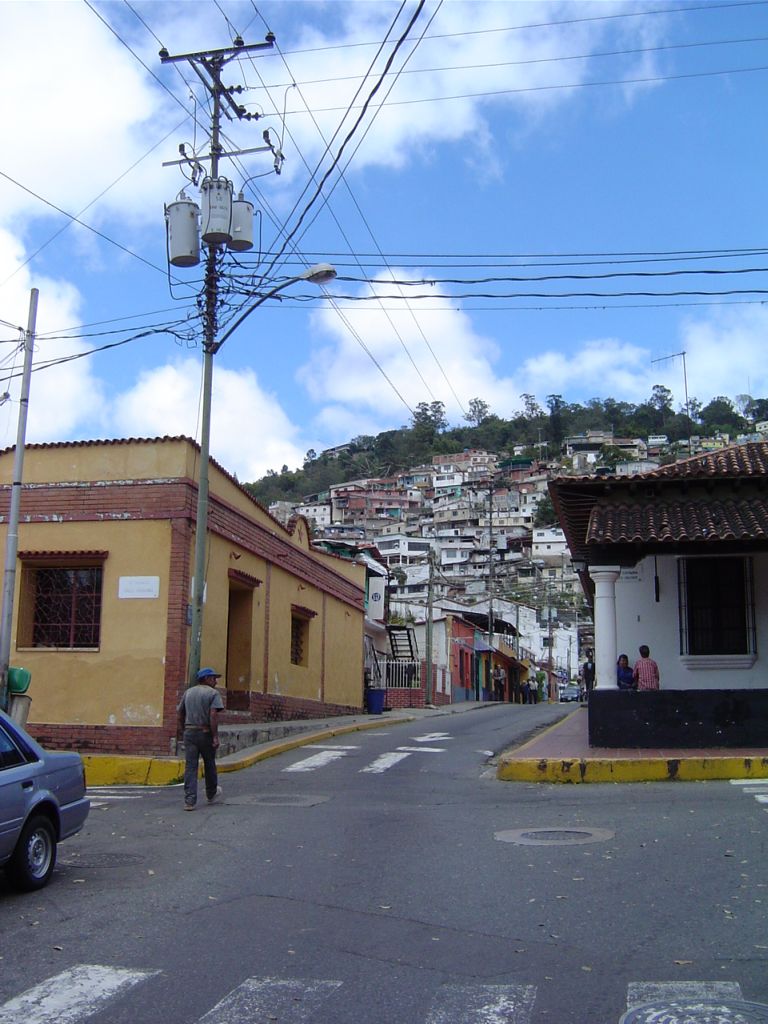
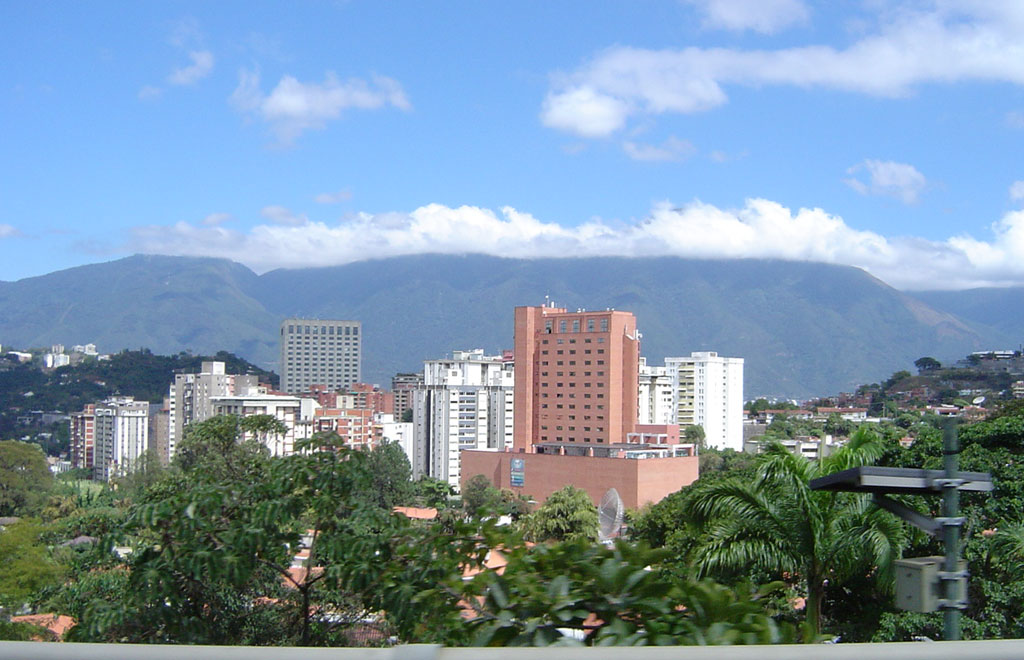
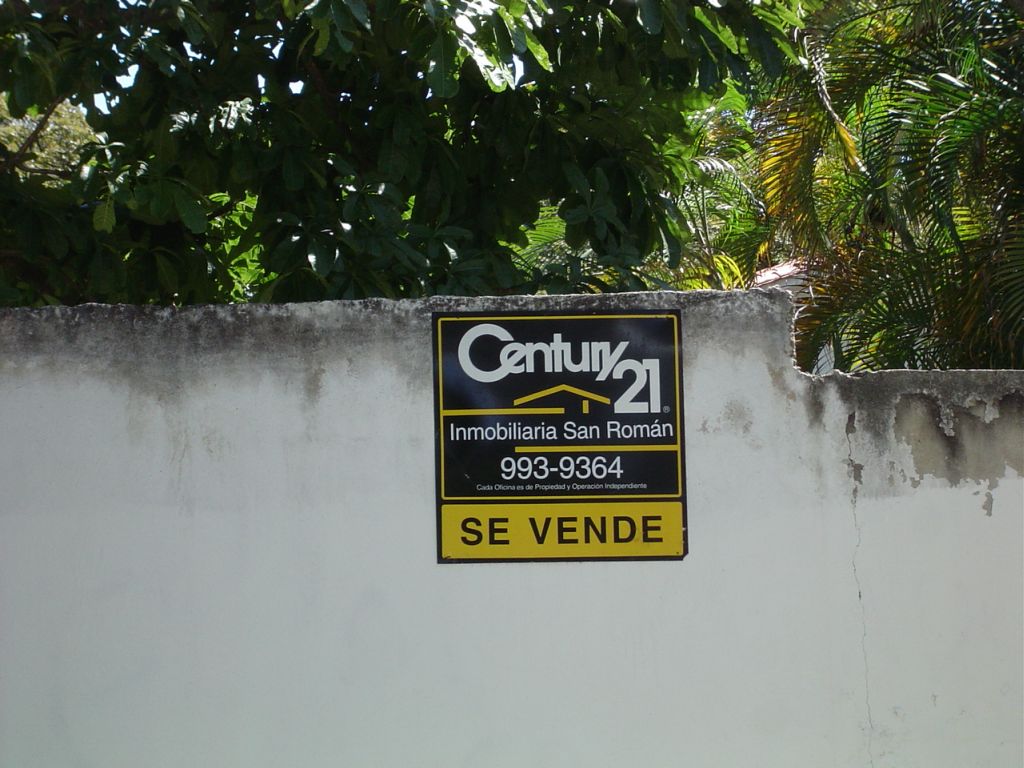
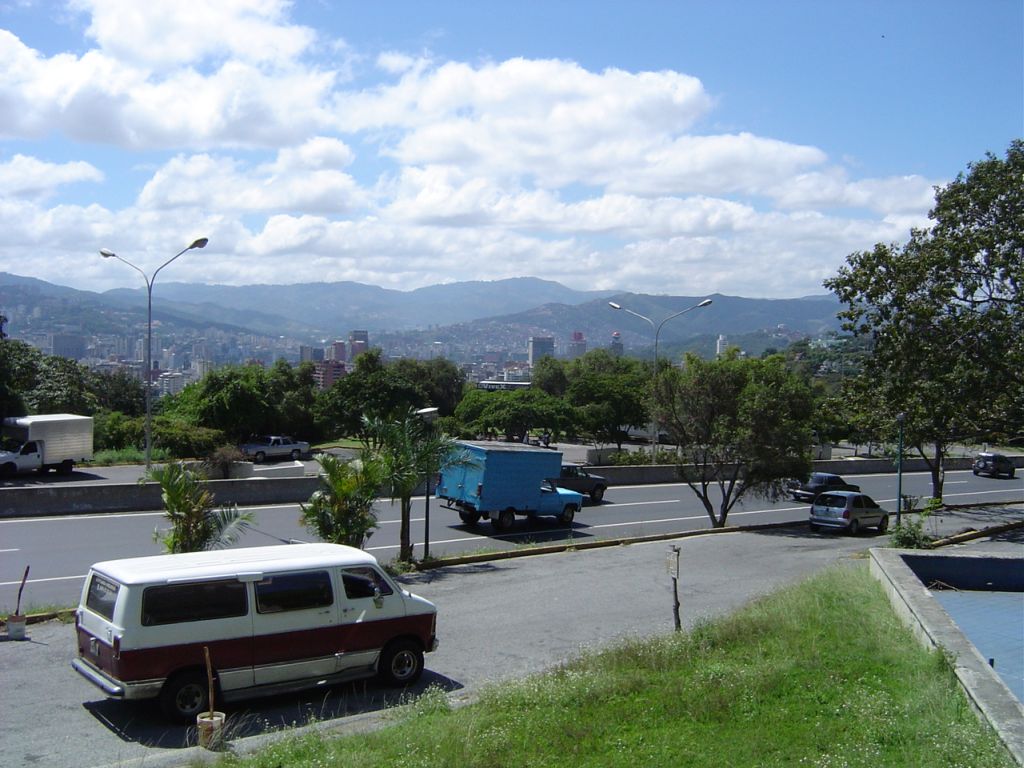
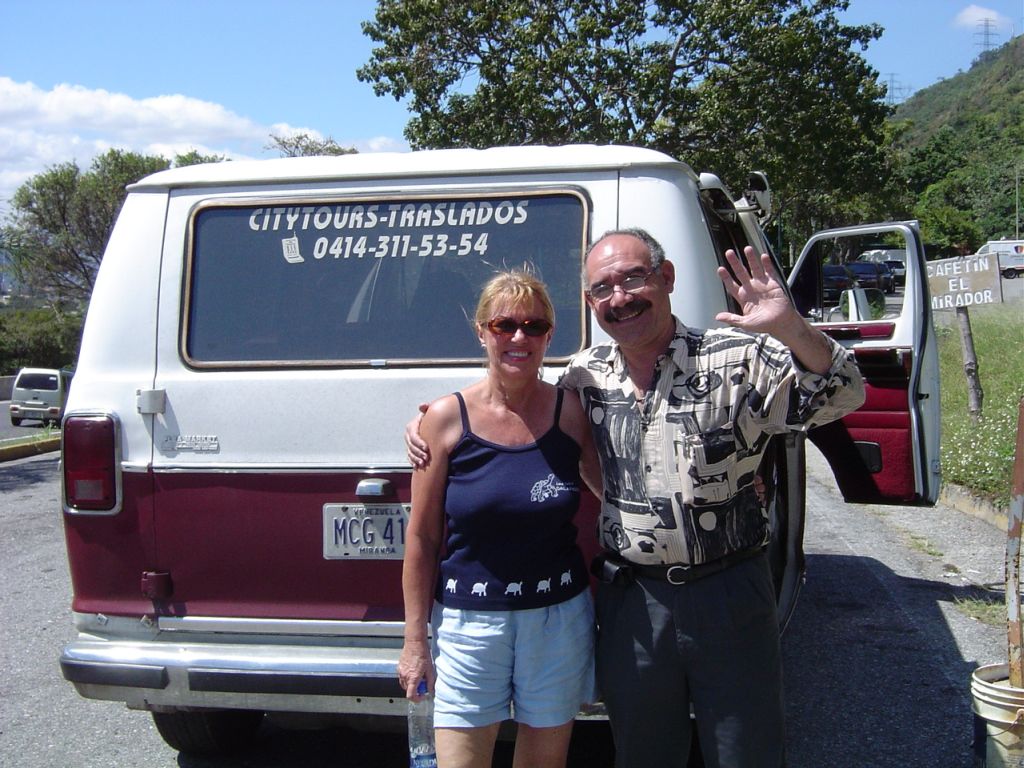
Call Tony for a excellent tour and good advice
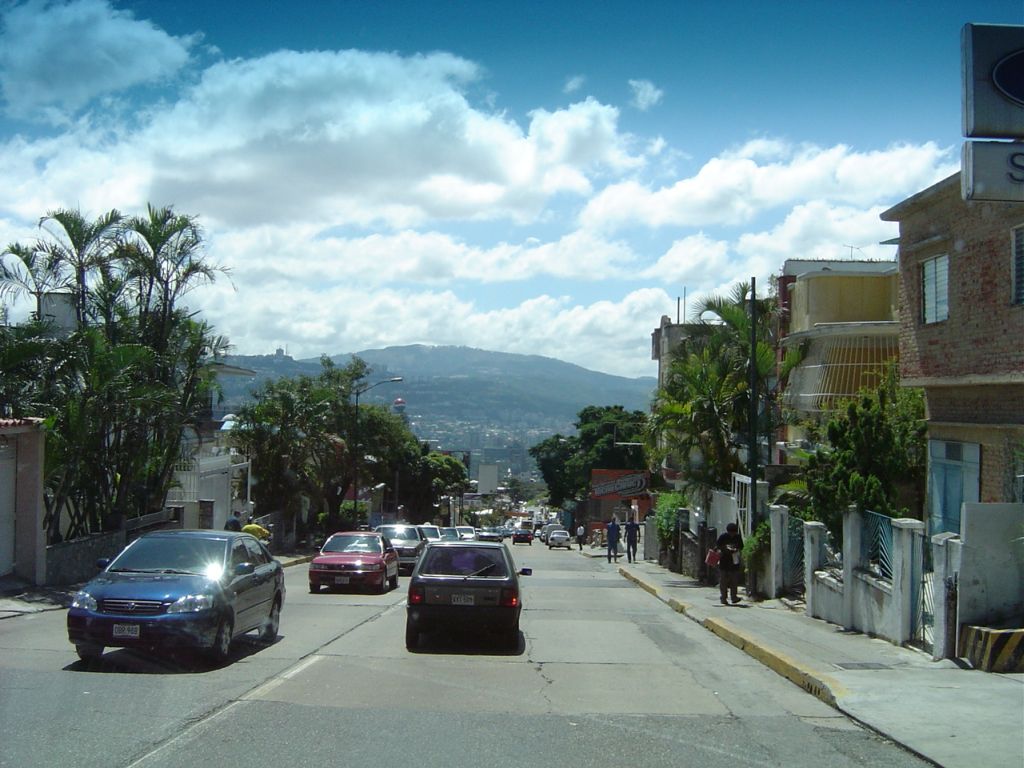
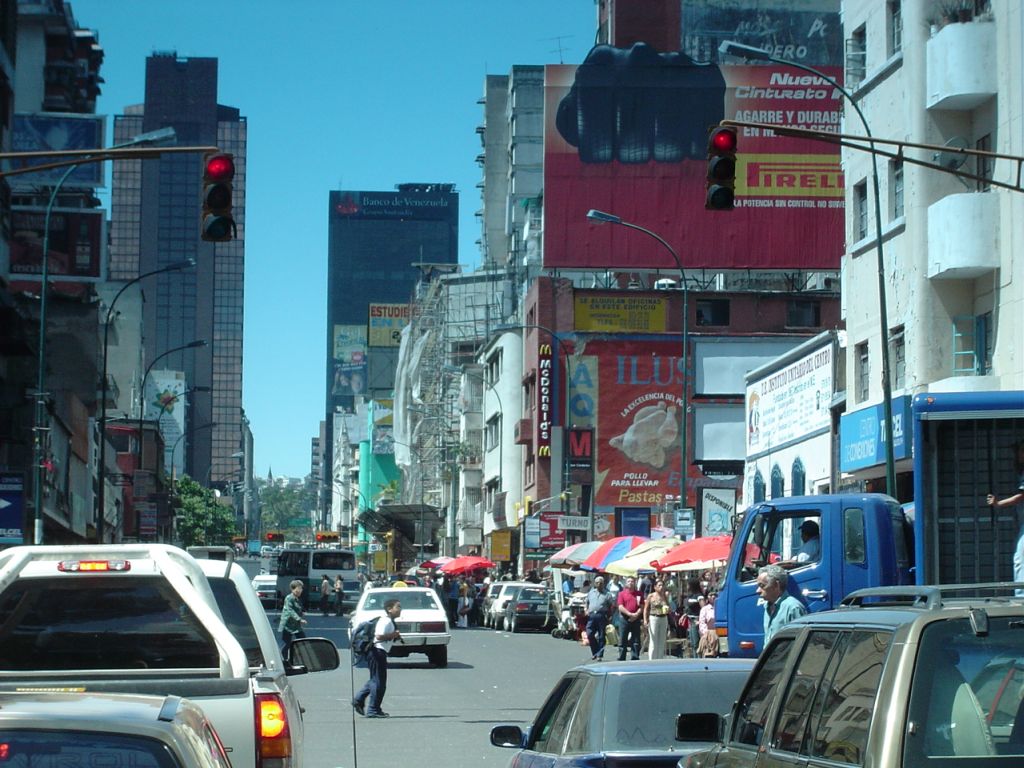
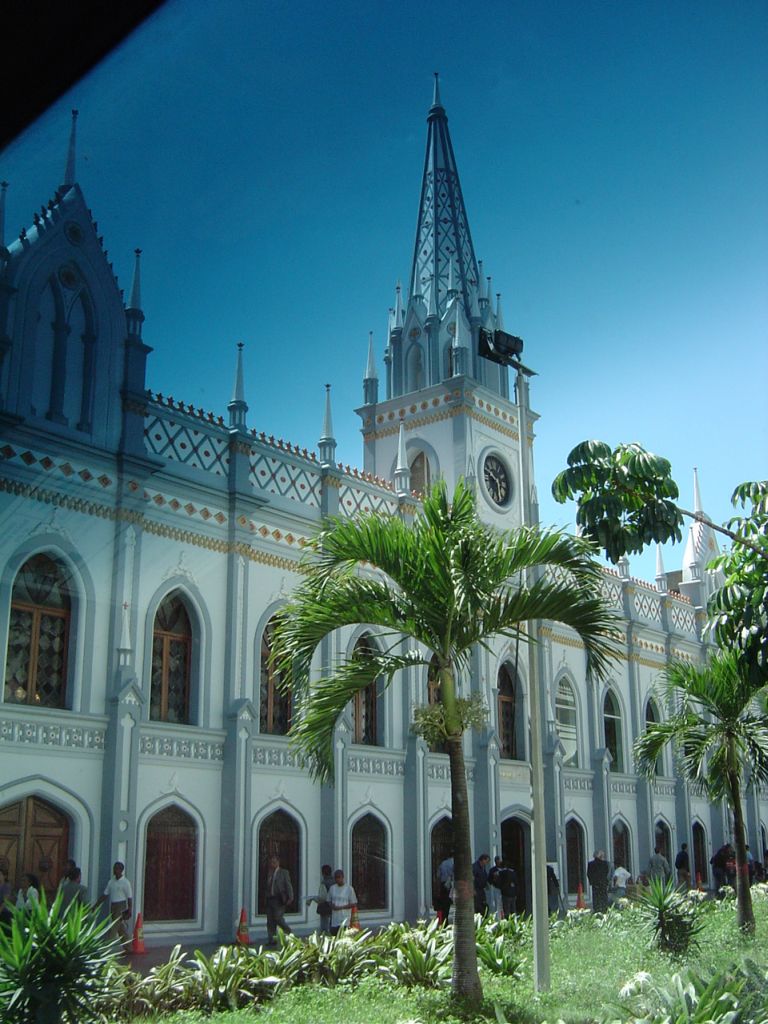
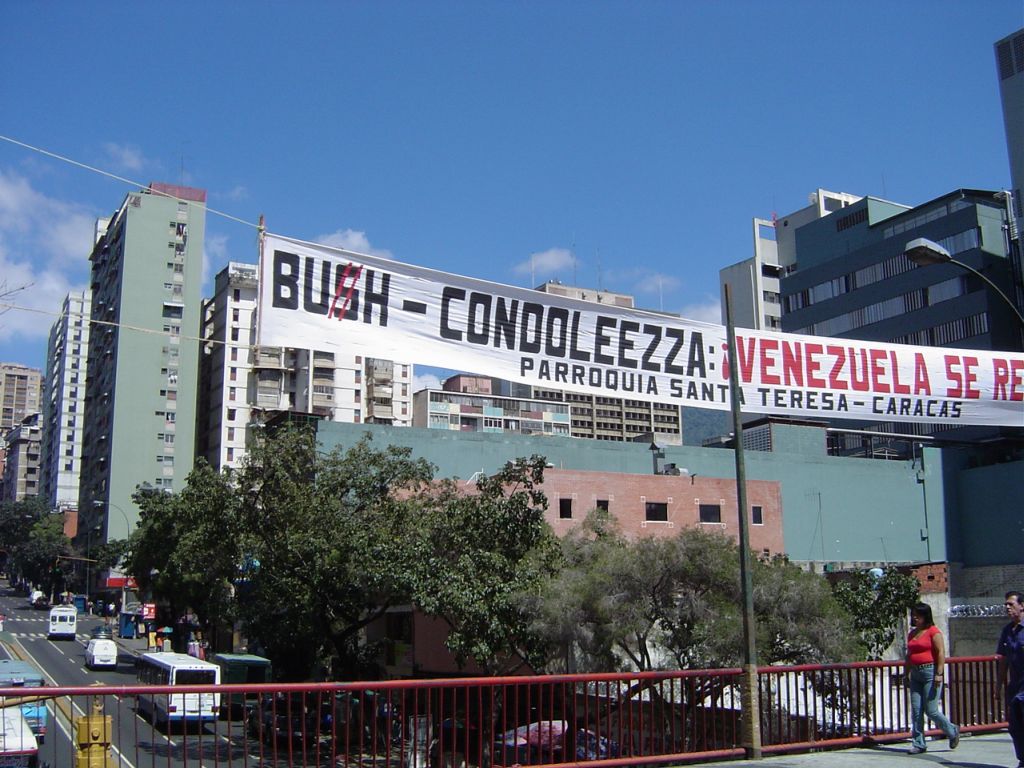
Parroquia means Parish
The U.S. government called Venezuelan President Hugo Chávez a "negative force" in the region
and sought support from Venezuela's neighbors to isolate Chávez diplomatically and economically.
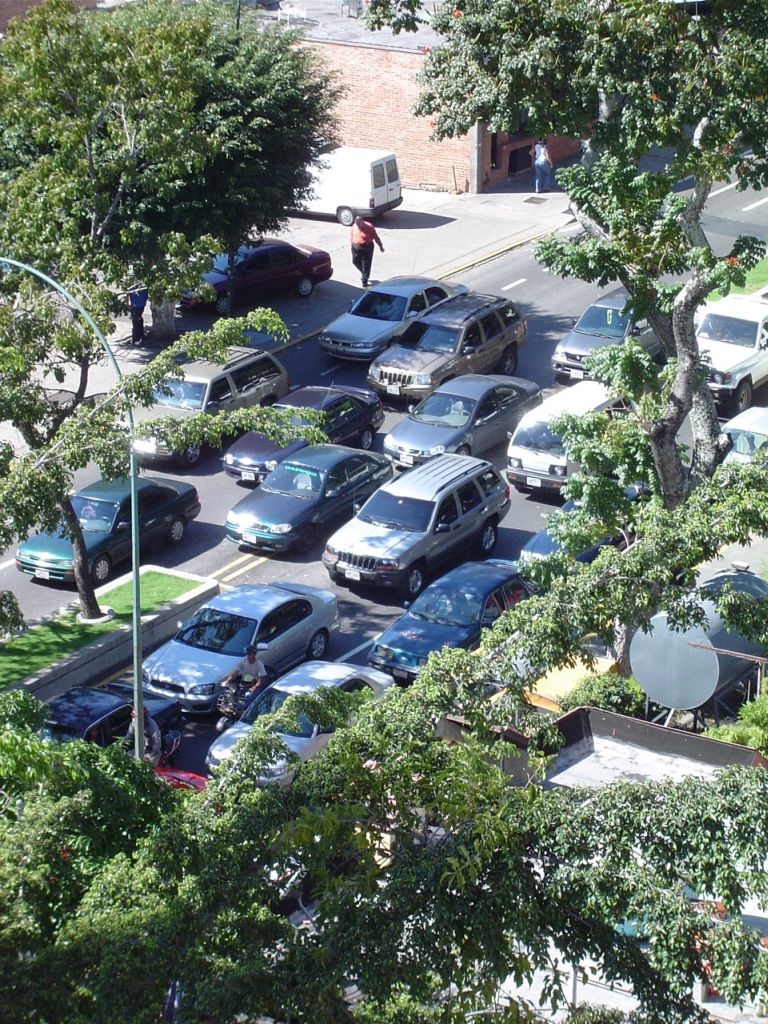
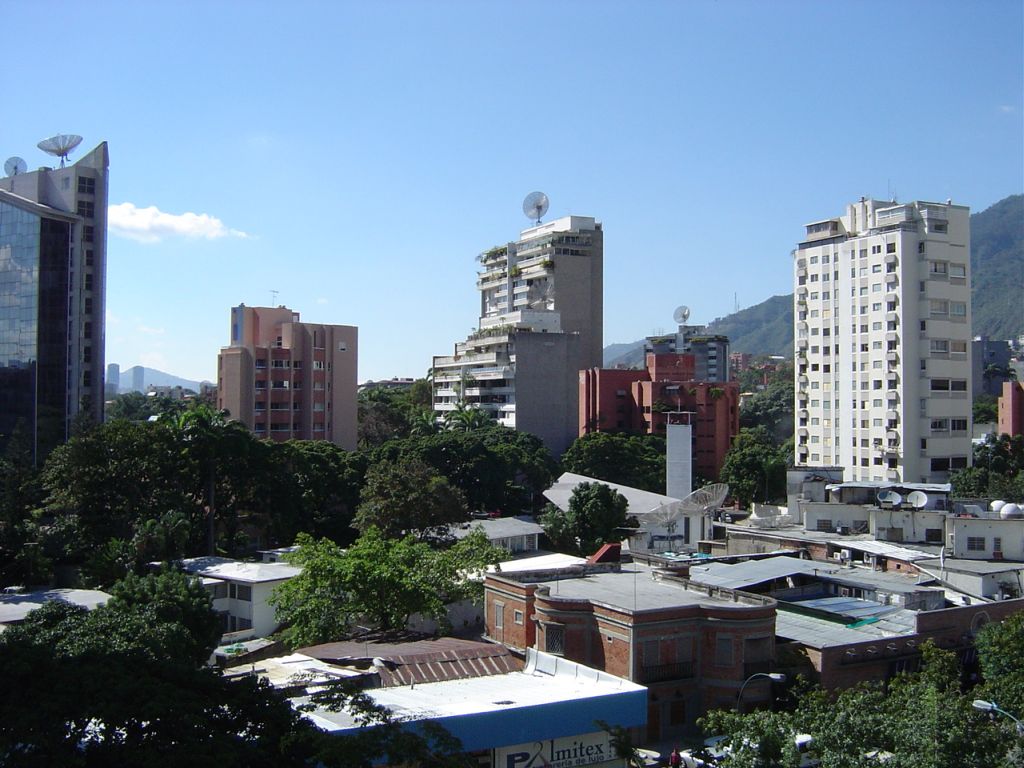
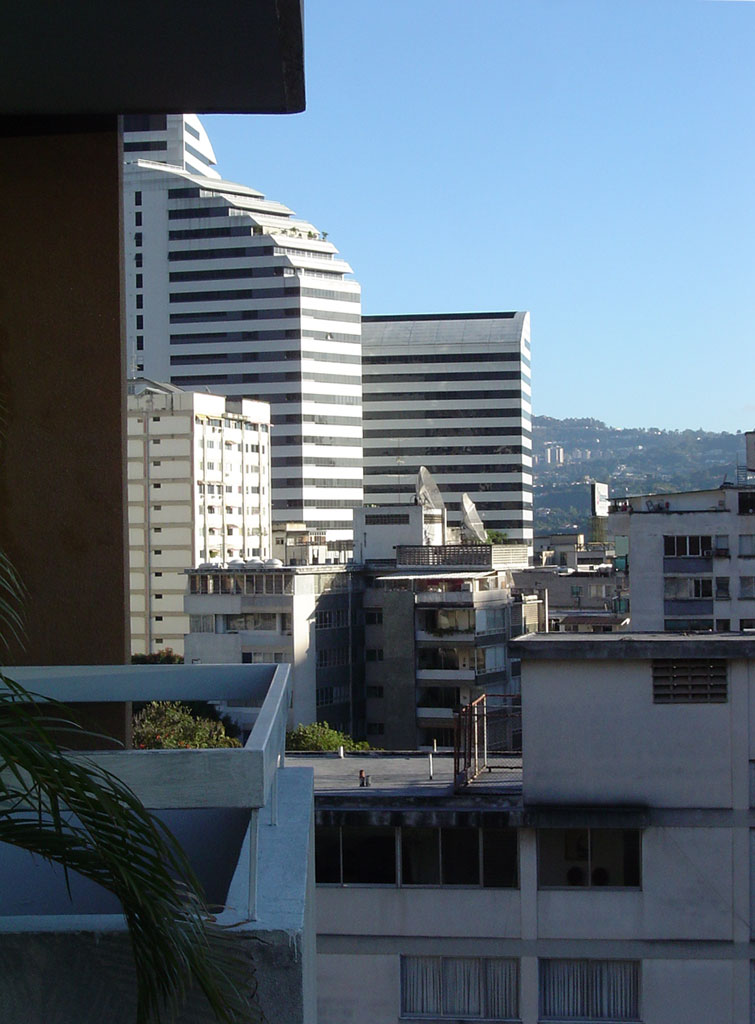
January 27th
We moved out of Caracas to the Hotel Santiago in Macuto, on the beach north of the city. The altitude is 3000 feet lower, so the weather is hotter and humid as well. The hotel restaurant, even without the overwhelming smell of paint, was too cold to enjoy and the open-air restaurant annex across the street suffers from truck and bus noise. It seems it's the drivers obligation to blast his bus passengers with as much music as they can stand; it's loud out on the street, so it must be unbearable inside the bus. If the sound system fails, the mufflers (or lack thereof) can always be counted on to prove the driver is a "real dude." The Carribean, with clean water and splashing surf, is just on the other side of a parking lot covered with empty beer bottles and trash. It isn't a place to swim, however; huge rocks take the place of sand.
To avoid the street noise, we moved from a regular room, very close to the road, to the "Santiago de Chile" suite at the back of the hotel. The bathroom sink faucets leaked all over the floor until Elsa put a wastebasket under the drain. The shower squirted out only enough water to hit the knobs below the shower-head, but it didn't matter; the water heater had been broken all week. In the final analysis, our move was out of the frying pan, into the fryer.
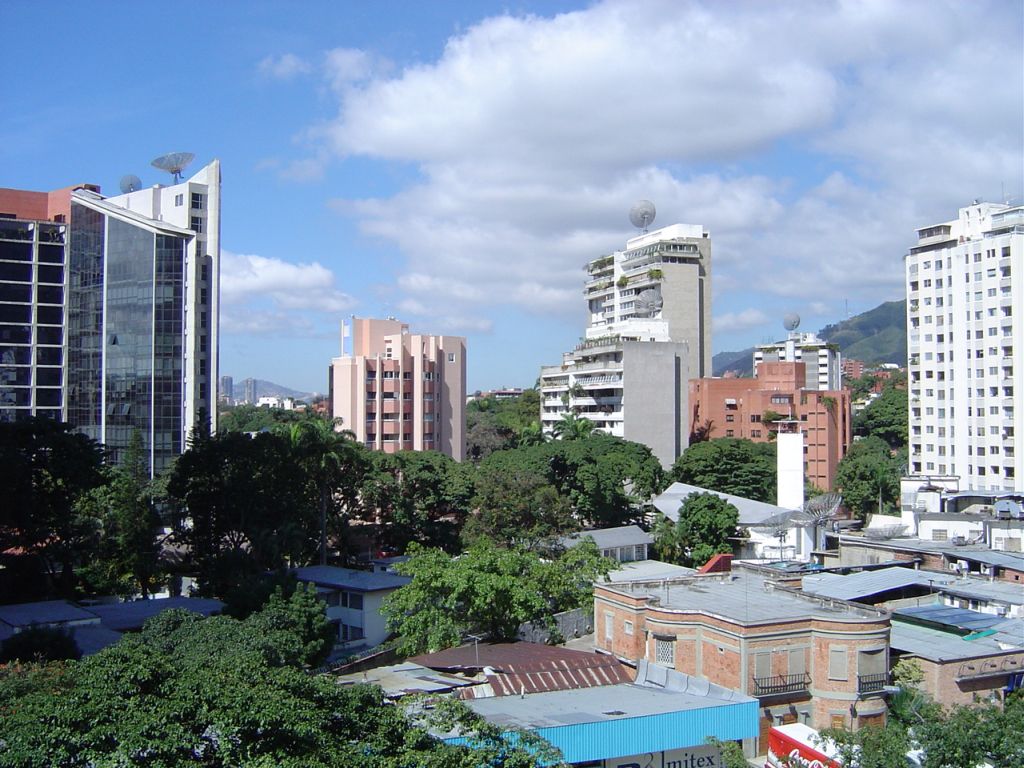
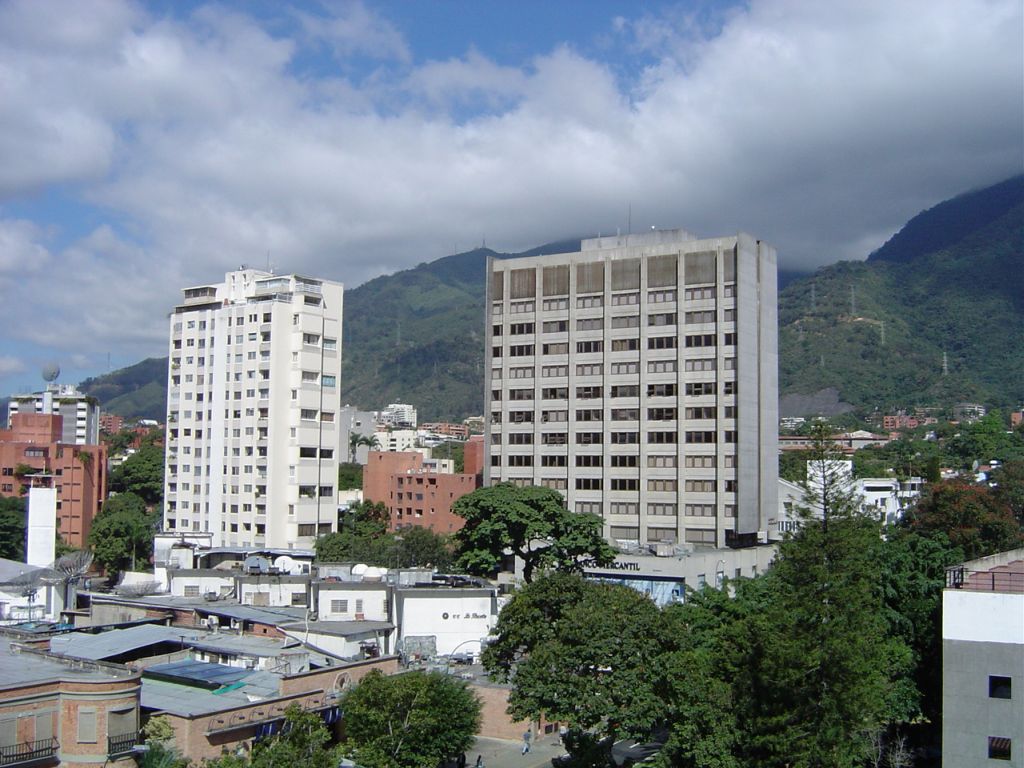
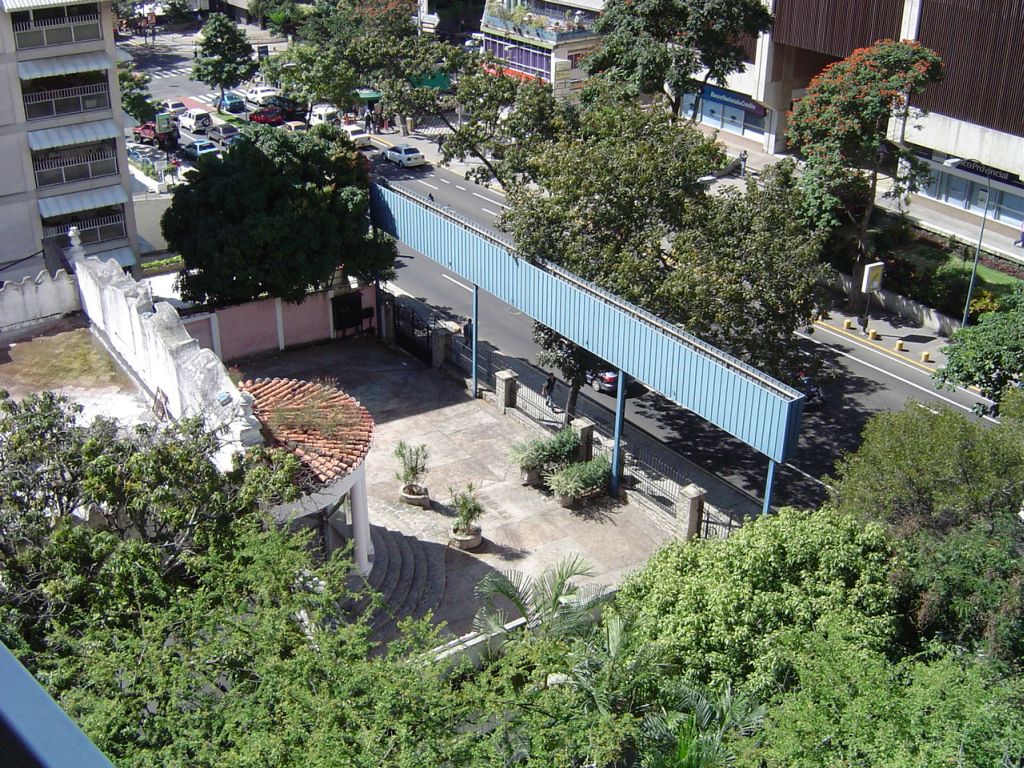
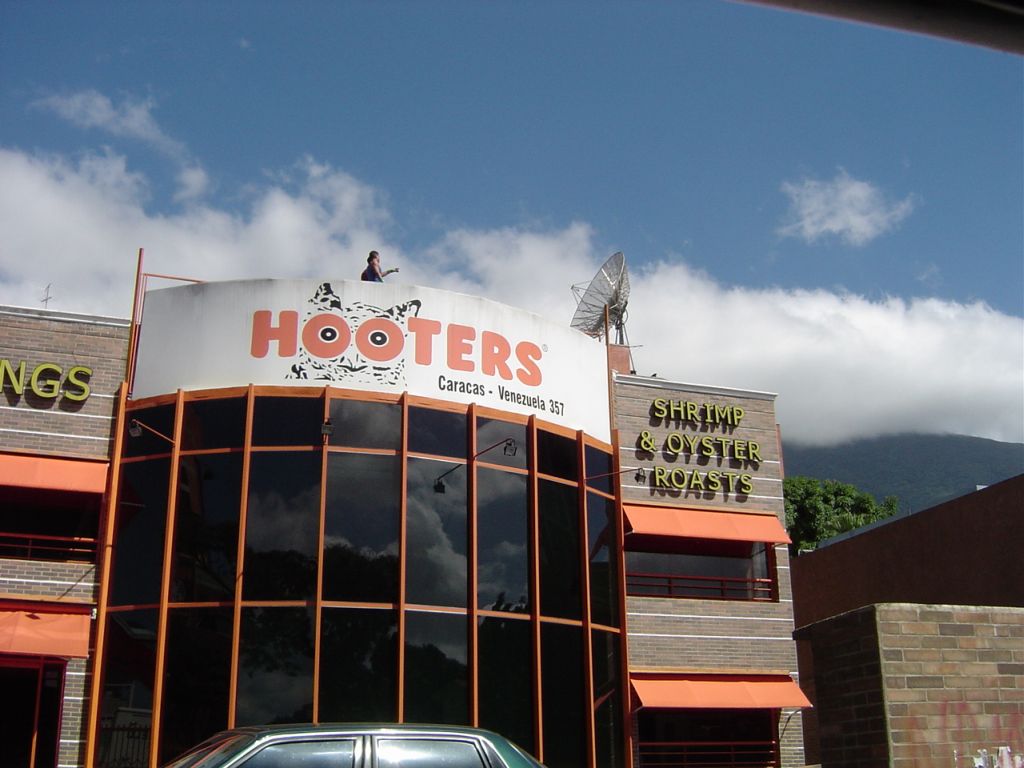
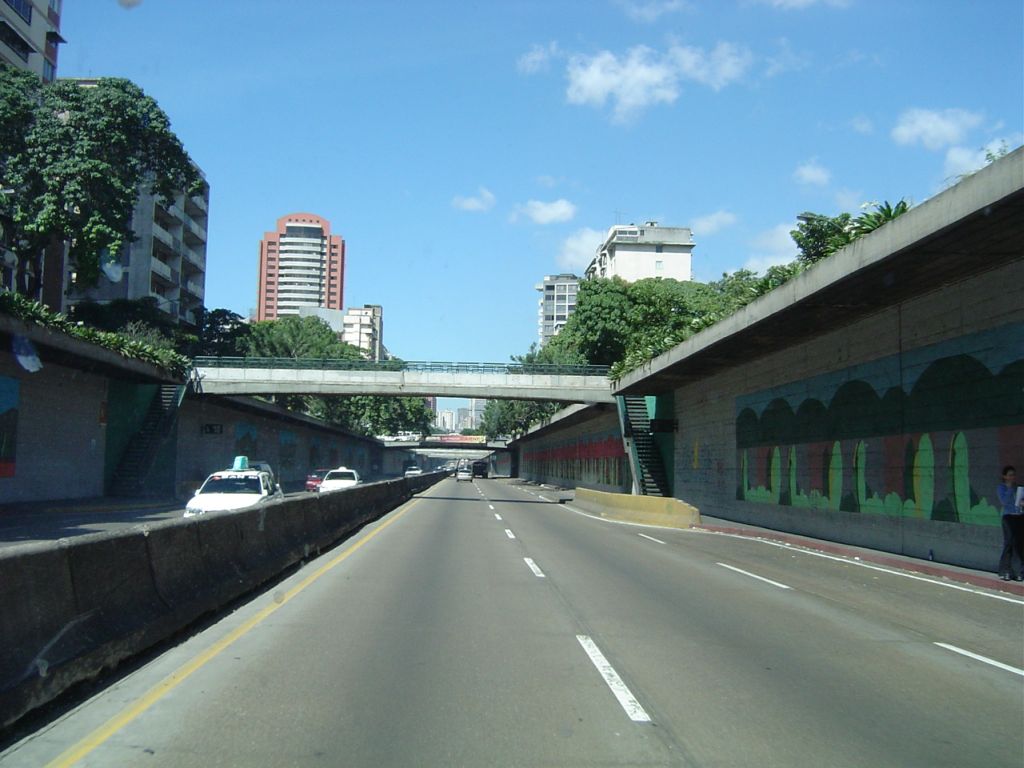
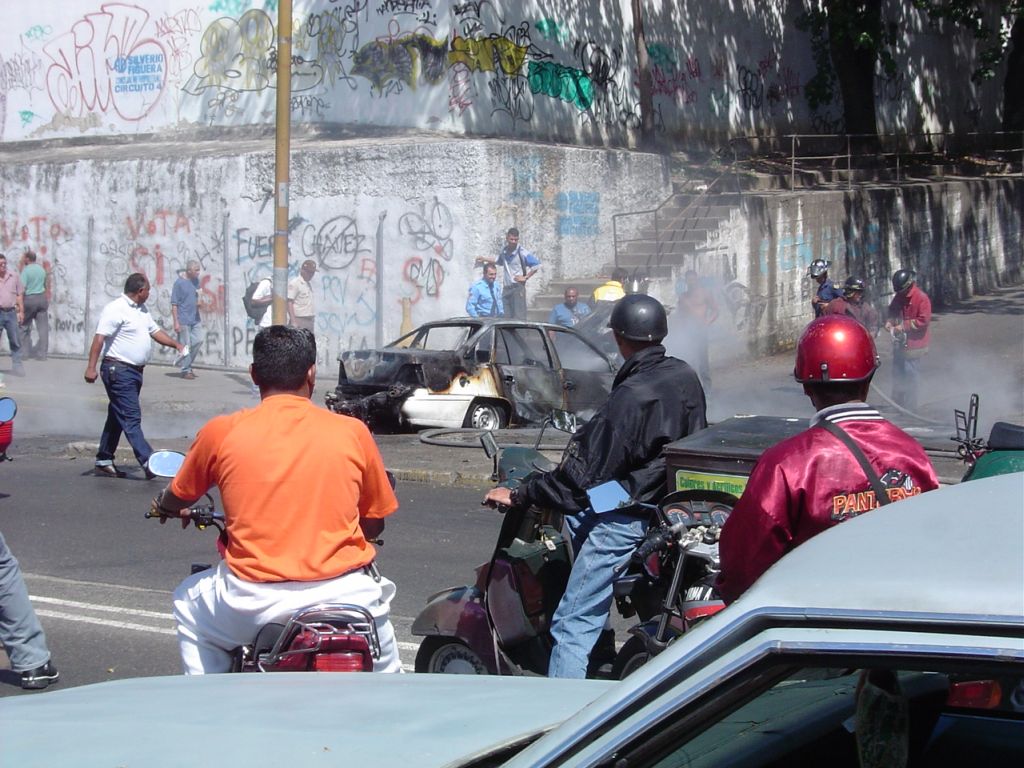
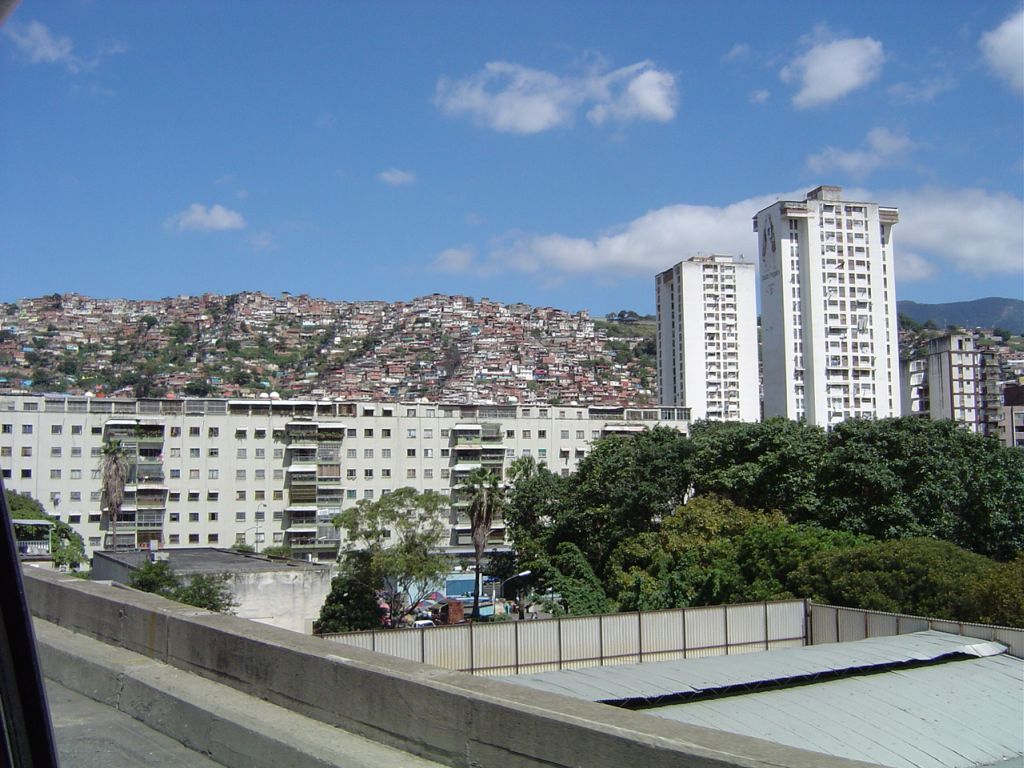
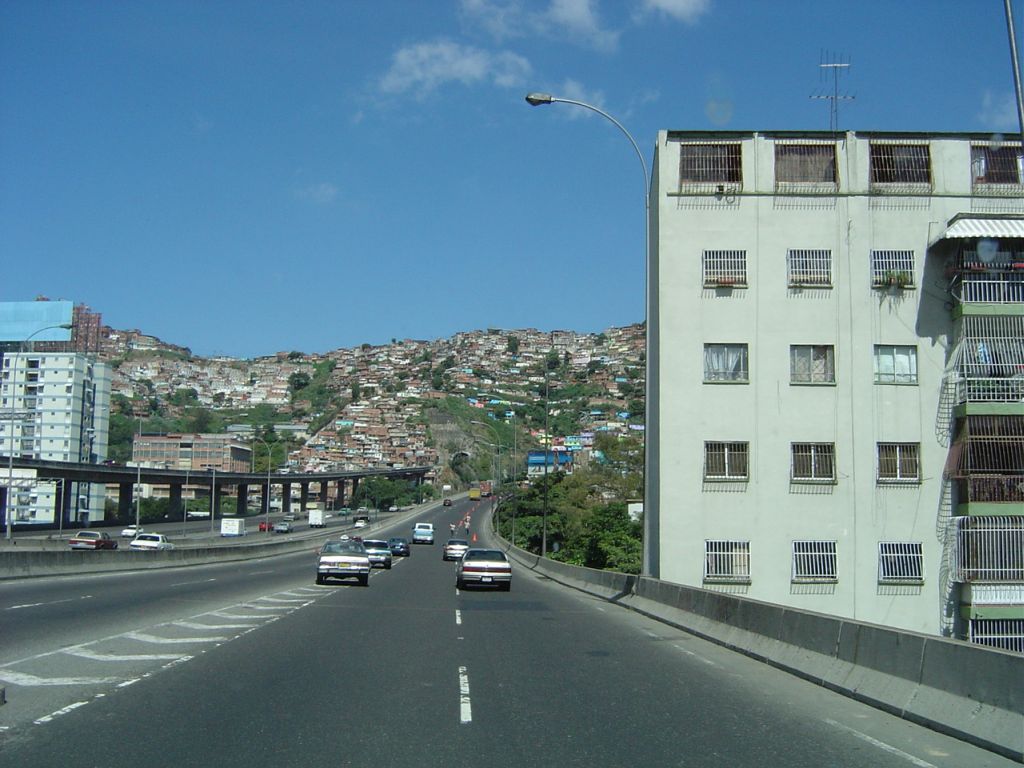
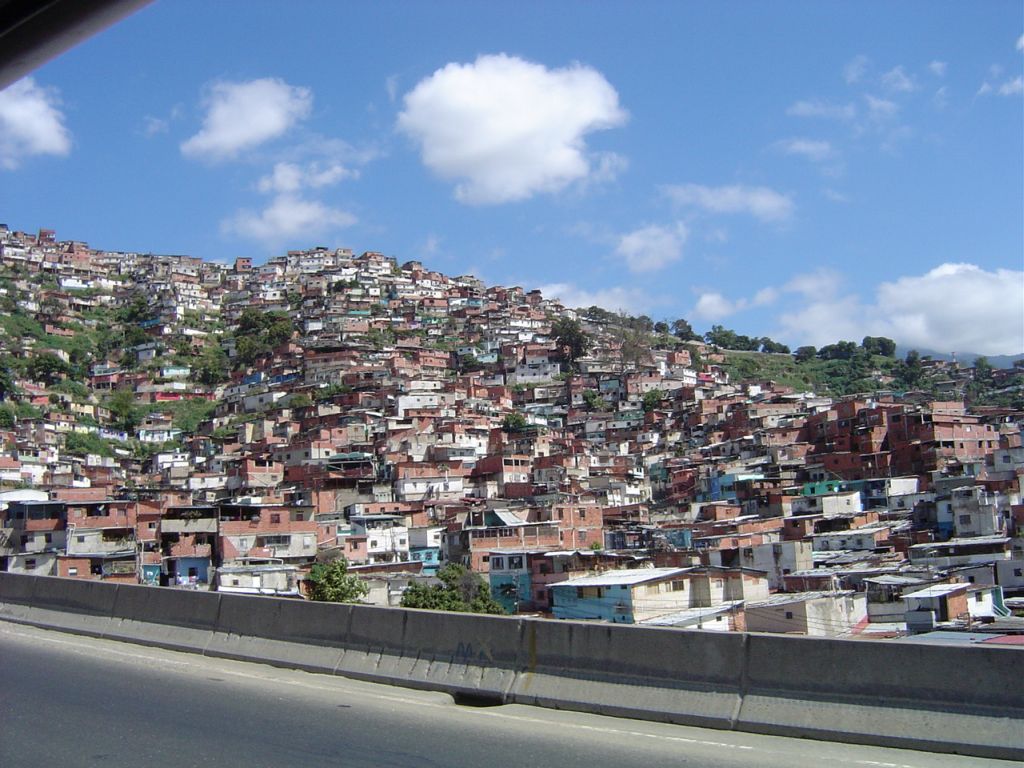
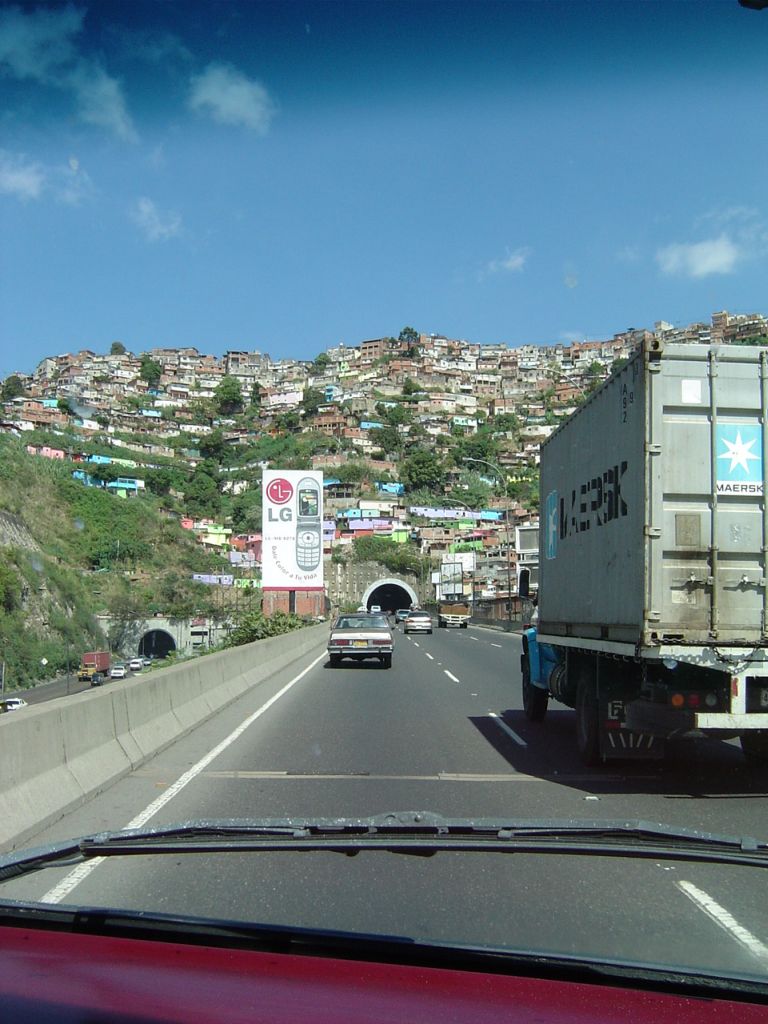
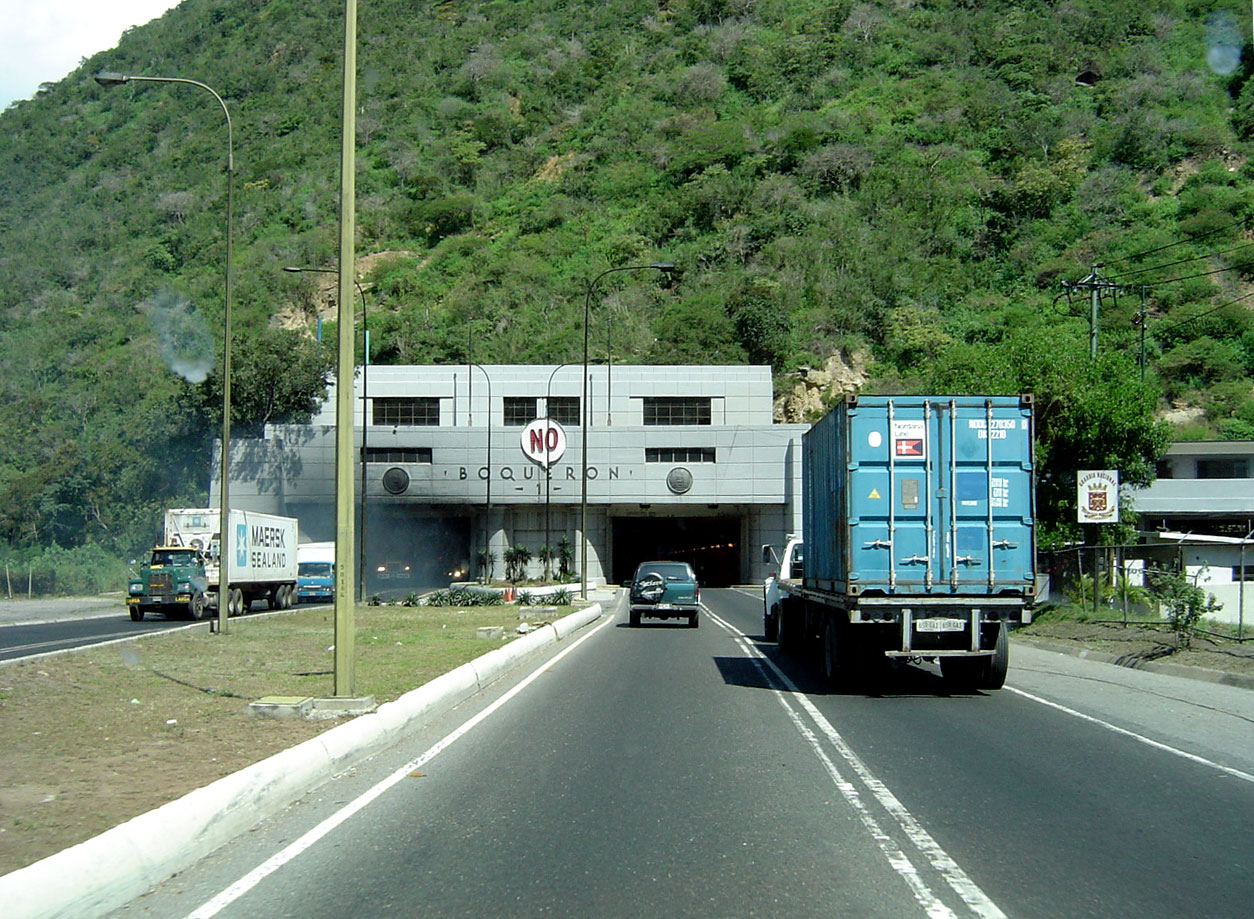
Boqueron Tunnel Number 1, over one mile long, connects the city with the main
airport and sea port. It was considered an engineering masterpiece in the 1950's.
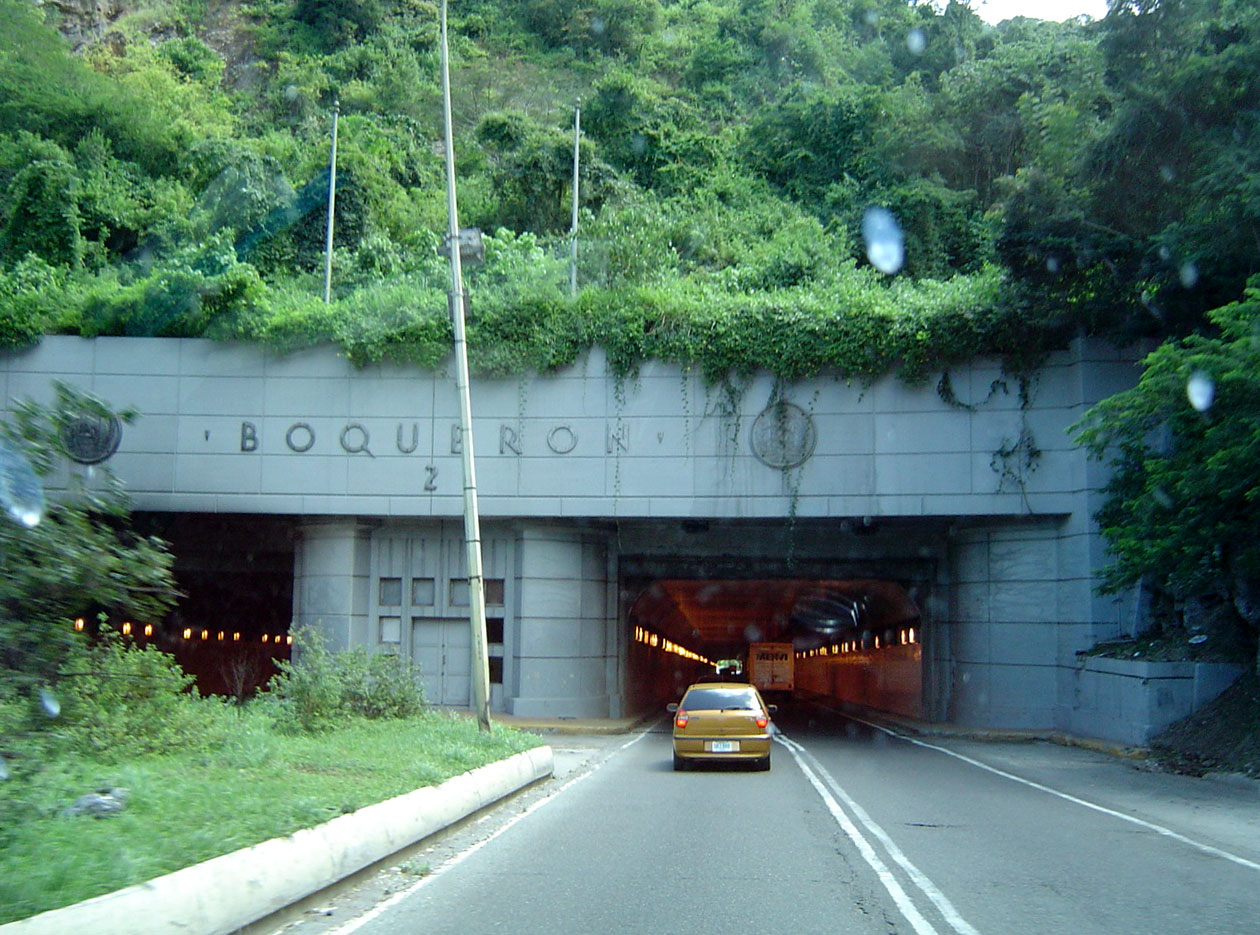
Boqueron Tunnel Number 2 completes the tunnel system, reducing travel time on the Caracas-La Guaira highway from one hour to 20 minutes.
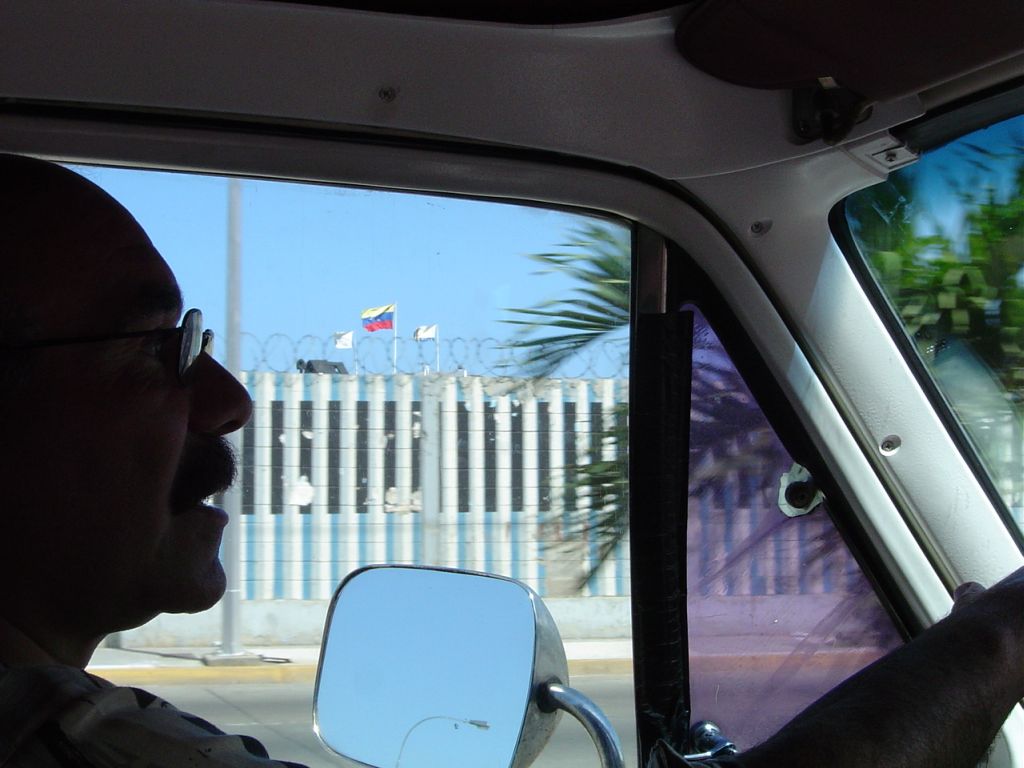
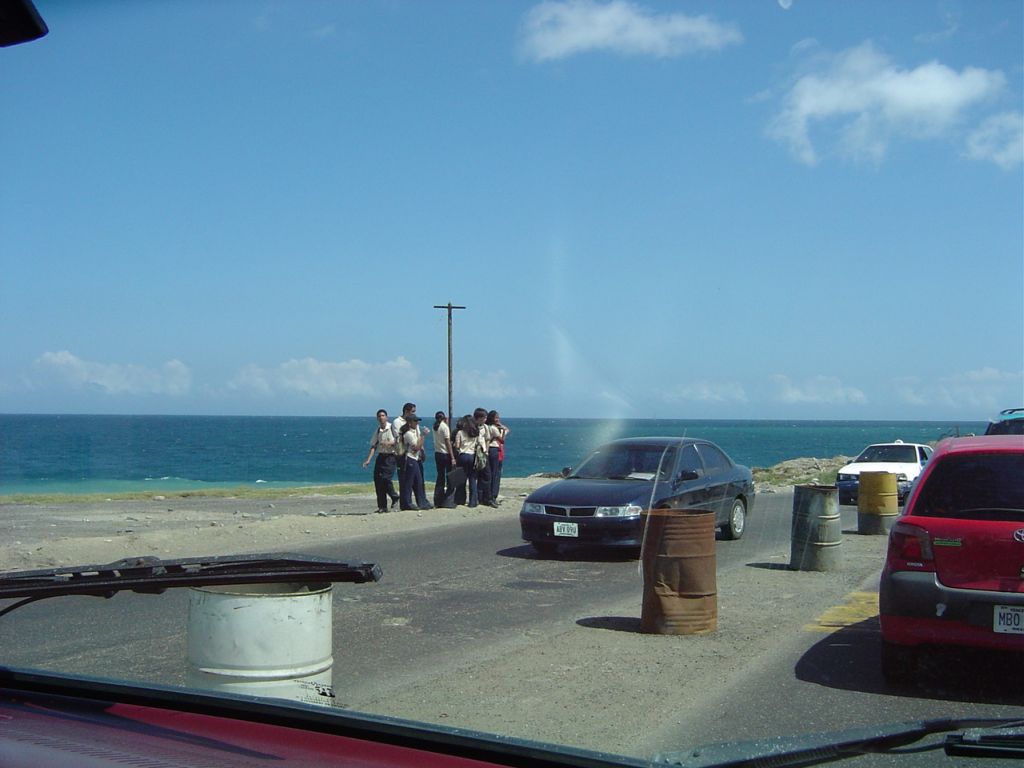
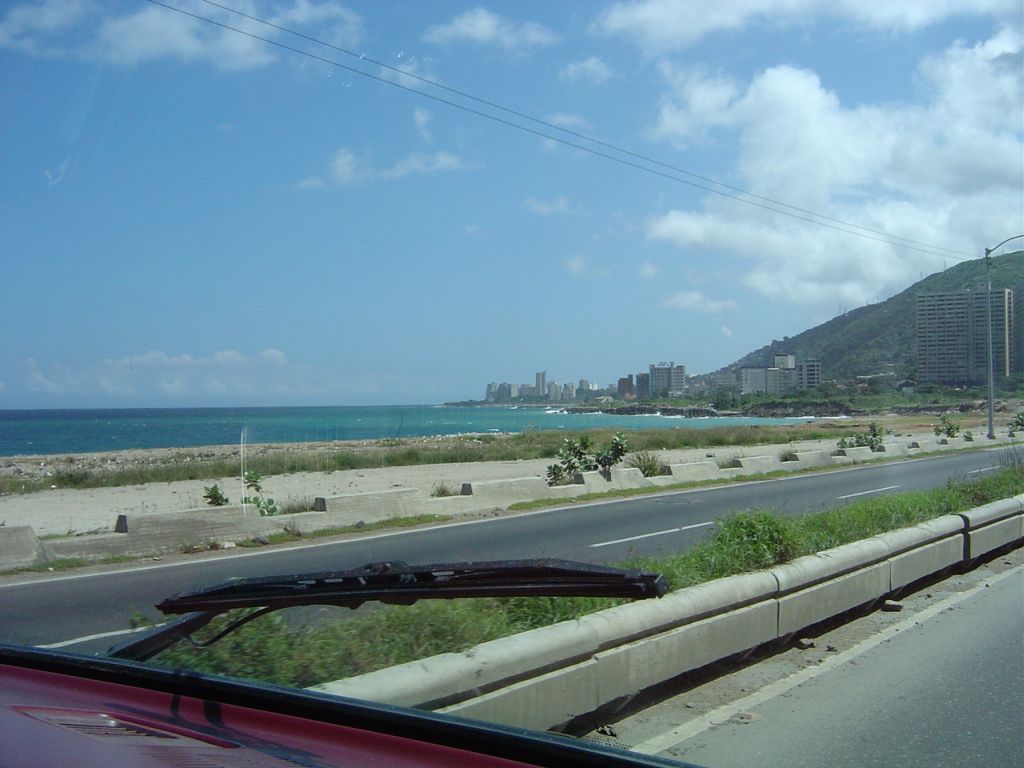
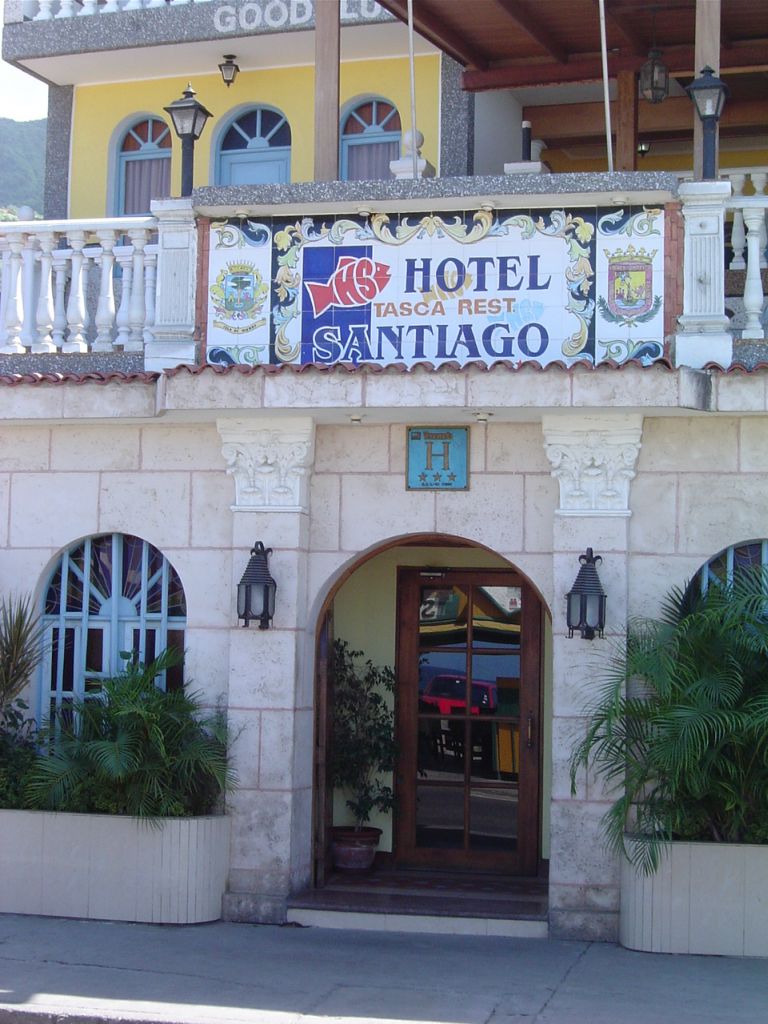
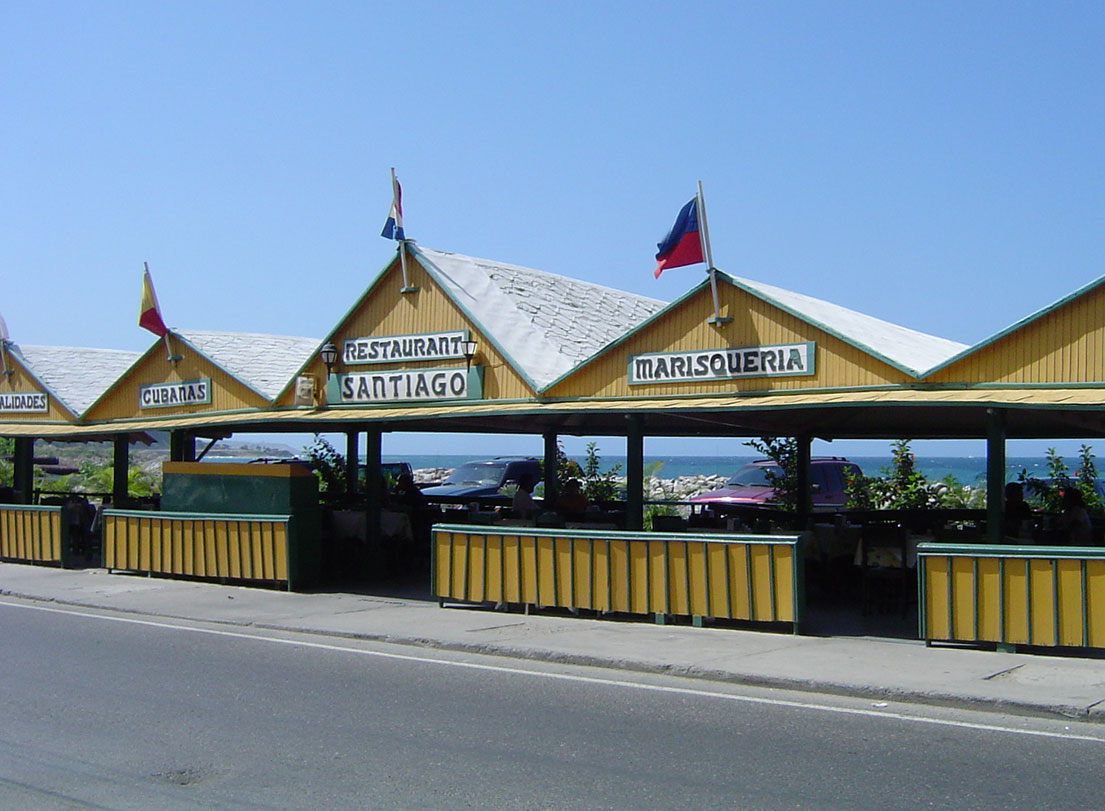
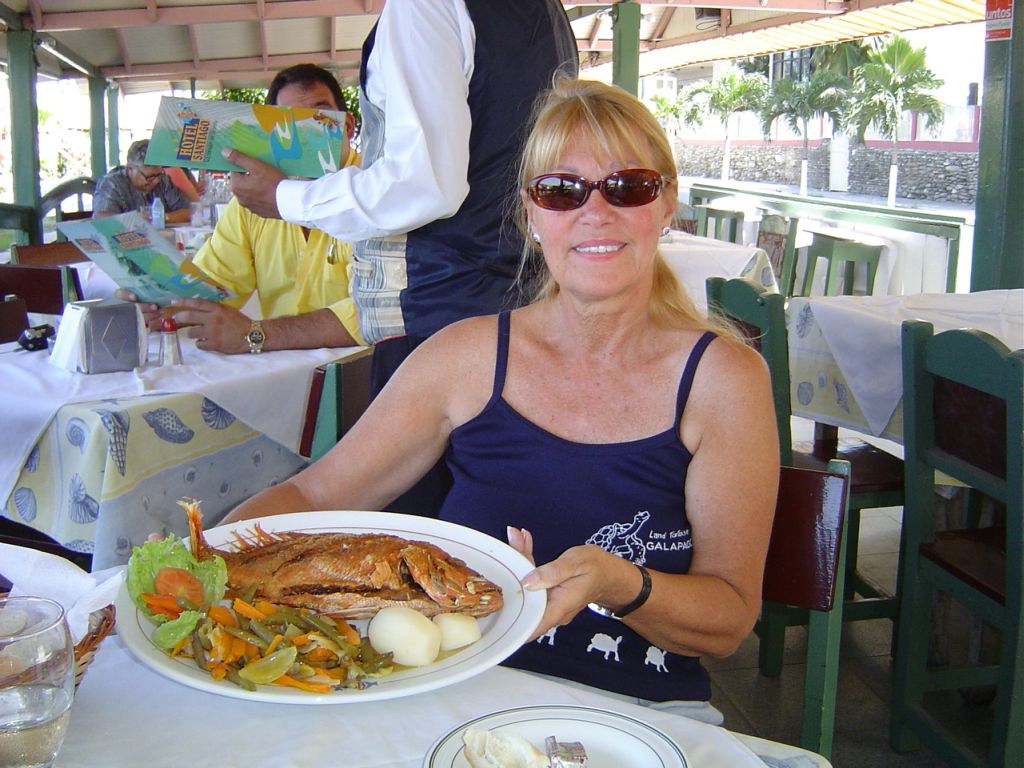
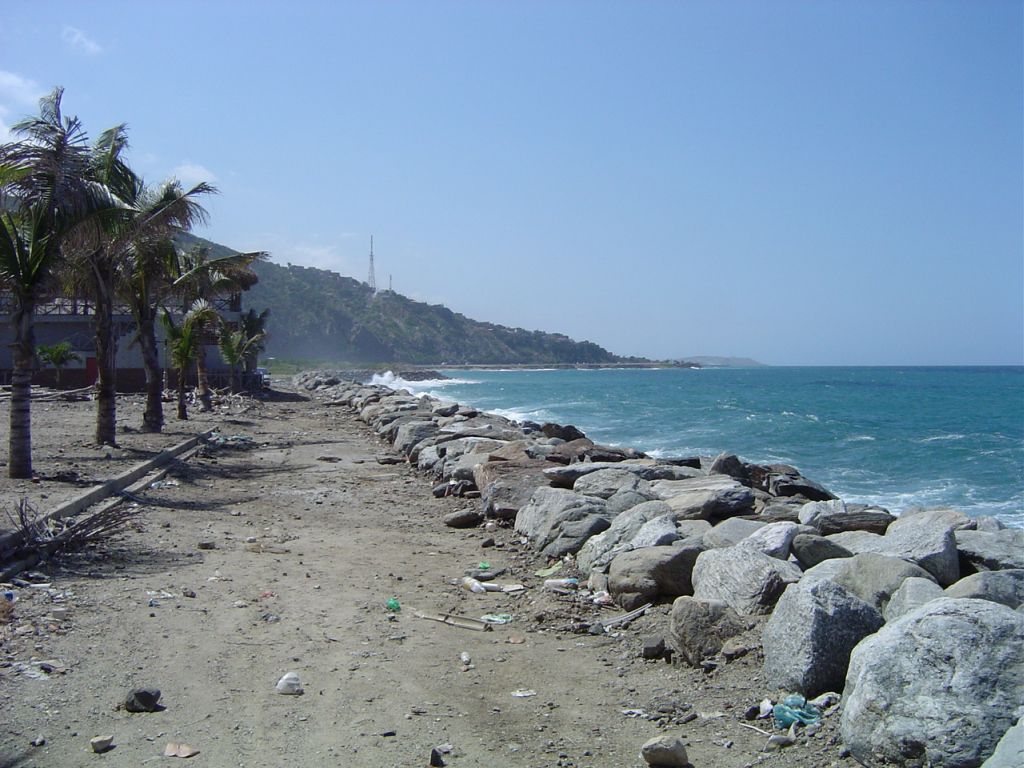
The Malecon
is a word used in Spanish-speaking countries, and especially in nations of Latin America,
for a stone-built embankment or esplanade along a waterfront.
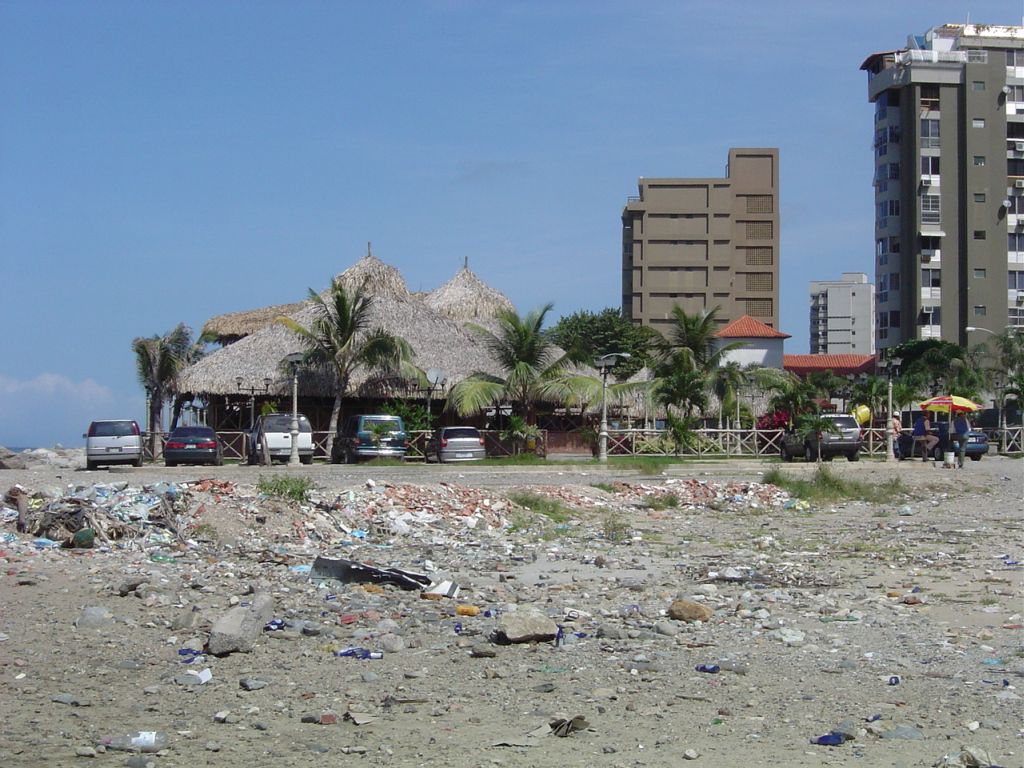
The is the best Caracas can offer
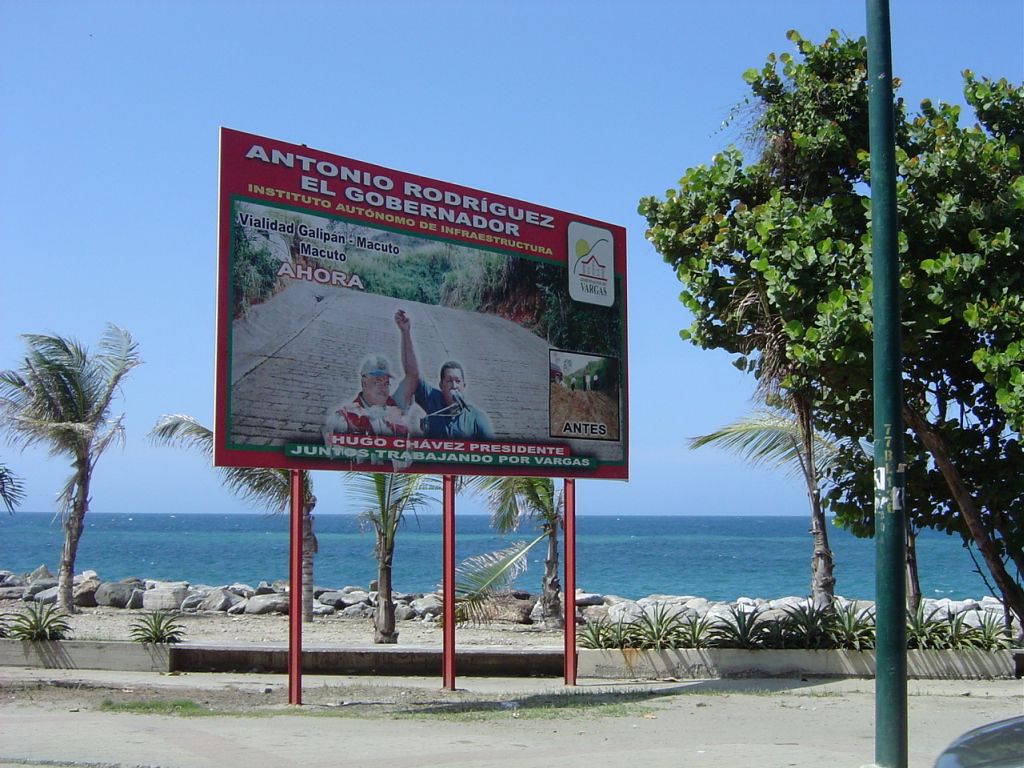
Here's the team to thank for the beauty before you.
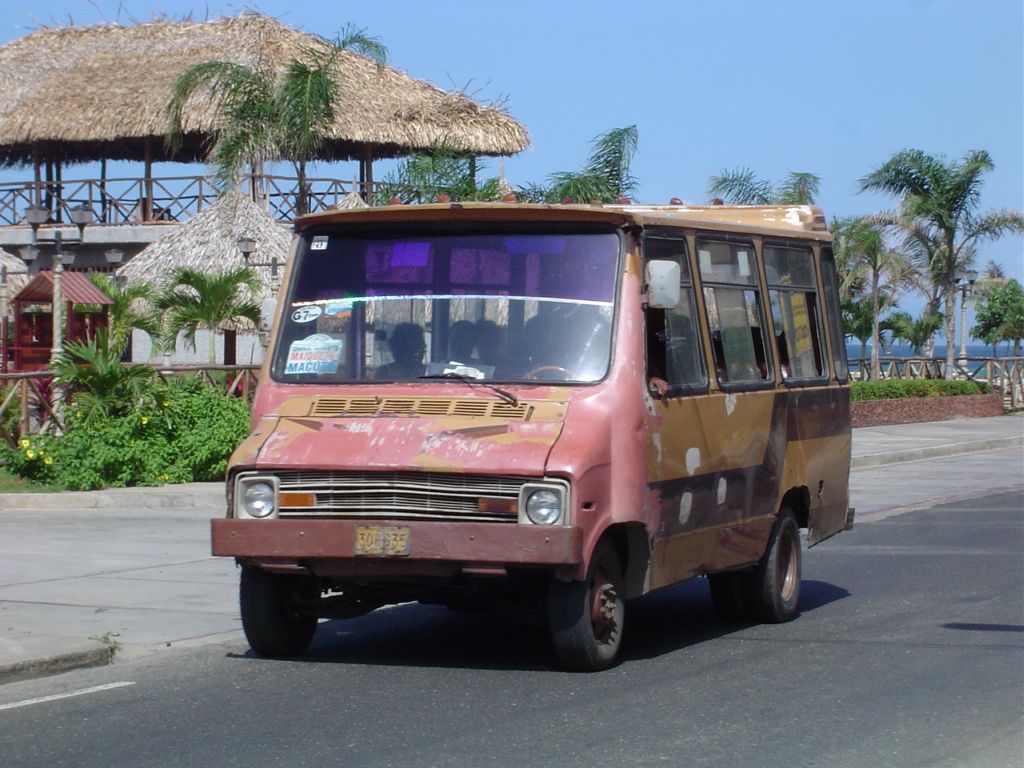
Gasoline is cheap at 29 cents per gallon
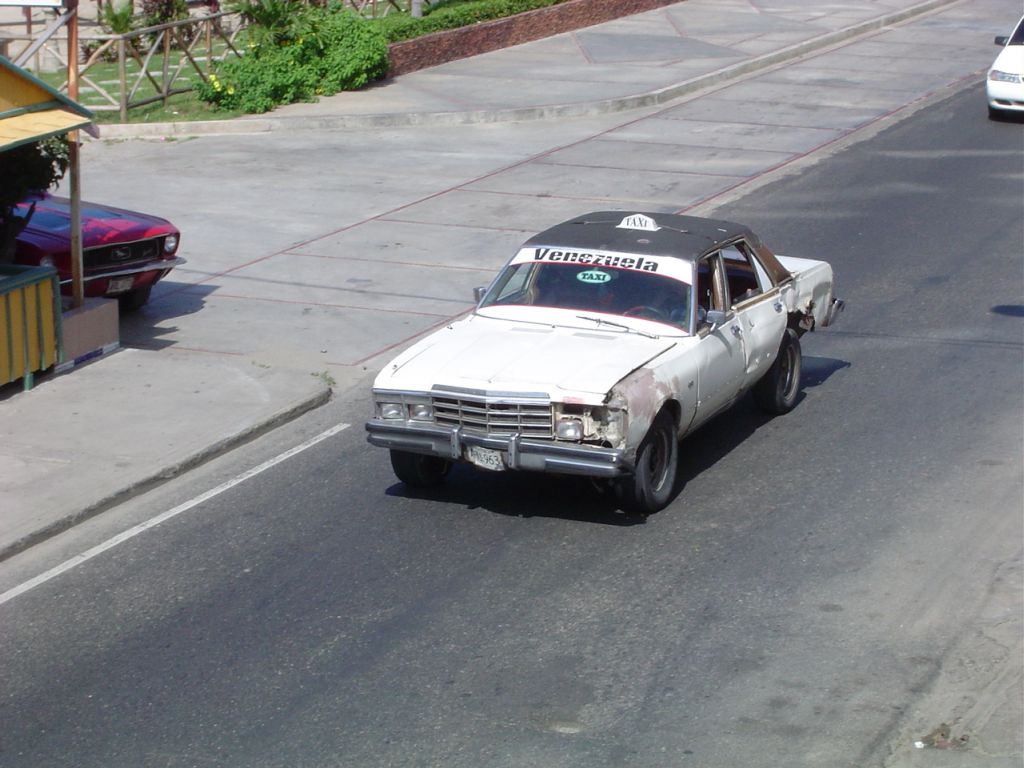
This is where America's huge old cars go to die
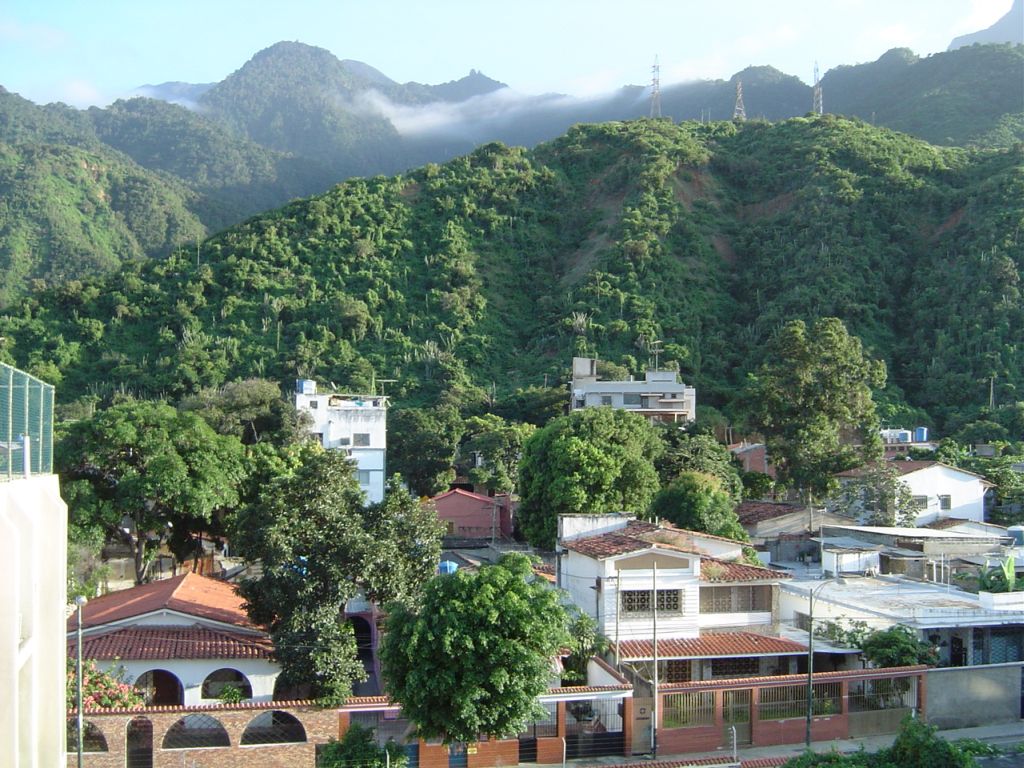
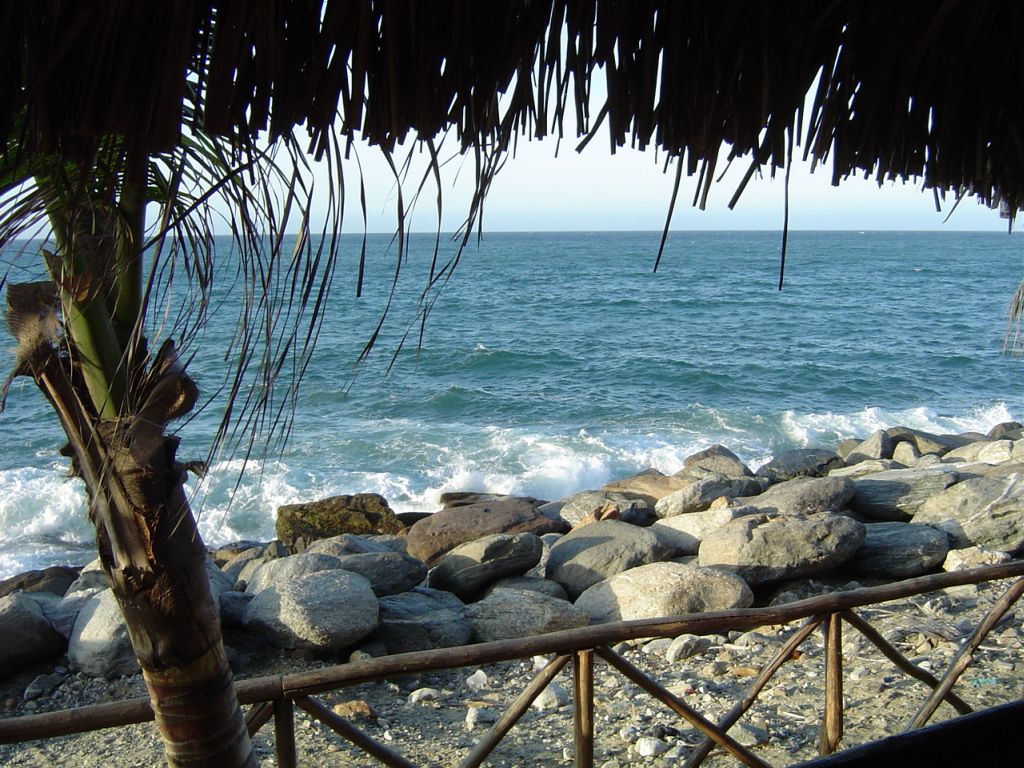
January 28th
Venezuela can even mess up bananas. The ones we purchased at the local grocery store looked like the ones you buy in America, but they're not. They are hard to peel, tough to bite into, and tasteless.Tony, who couldn't make his planned picked-up to take us to the airport (he sent another driver), aproached us at the Avianca counter, where we were completing the check-in process and preparing to pay the departure tax of US$48.00 per person. Tony took US$80 from us and exchanged it for Bolivares with a friend on the street, bringing back enough to pay the tax in the local currency. I gave him the difference, about 10,000 Bolivares (US$5.00), since his help saved me US$16.00.
The only good thing about Venezuela was our tour-guide and taxi driver, Tony Garcia. Call him at 0414-3115354.
Caracas, Venezuela... Not Recommended.
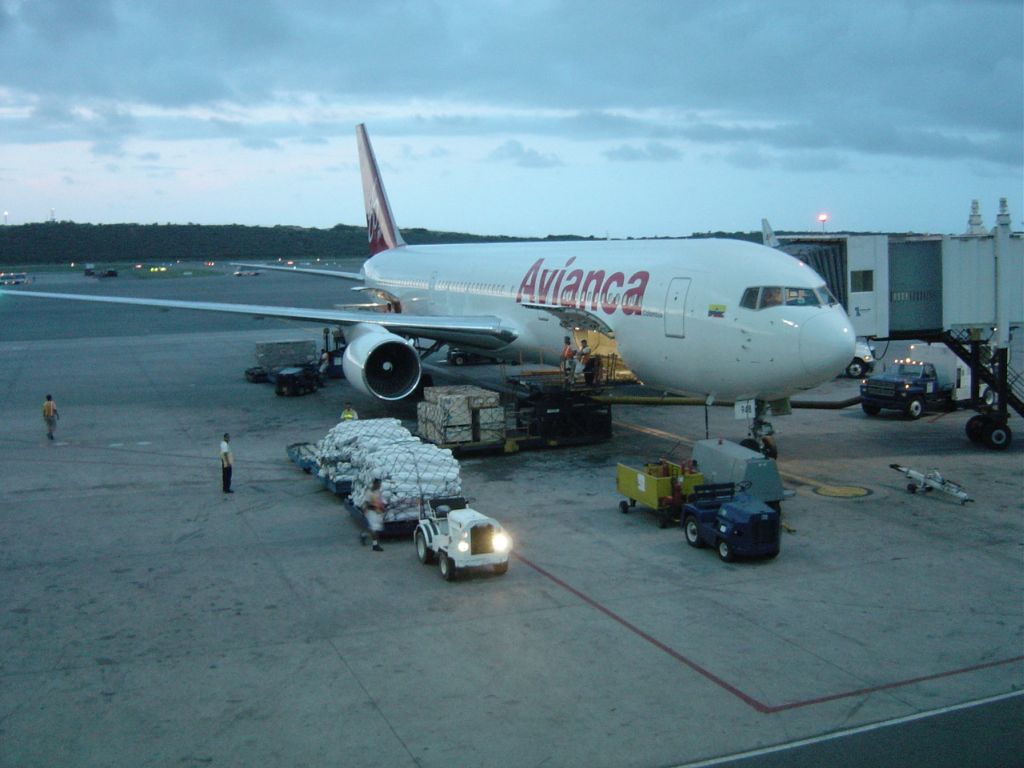
Departing Caracas, Venezuela, for the all-night run to Rio de Janeiro, Brasil